
“The Pandemic Was Here” is a photo essay and reflection on the ecological, environmental, visual and psychological impact of the pandemic. Over the course of several months, while I was out walking, I would take photos of discarded or lost masks, gloves, and bottles of hand-sanitizer: the most obvious markers of the waste produced by our safety response to the pandemic. The discarded items become signs that often elicit various emotions: anger, concern, grief, sadness, fear and worry.
As the snow melts, these objects from the past year of the pandemic are slowly revealed, like ancient or prehistoric markers from another era, but belong to the time that we have just, barely, emerged from. The passage of time has felt wonky and at times accelerated, at times painfully slow. We have spent a year now, at the time of my writing this, under various isolation restrictions. Therefore, I am presenting 52 photos of pandemic garbage, one for each week of the past year.
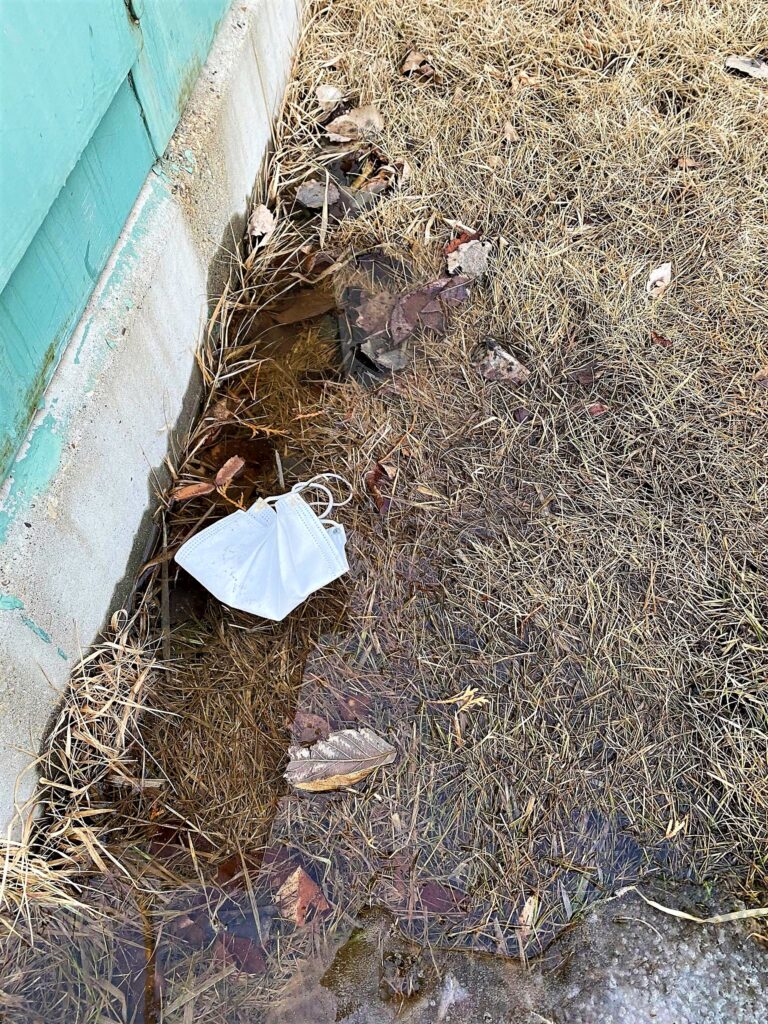
Viewers might experience a dissonant feeling of nostalgia– nostalgia because the masks are a sign of the immediate past, this past year, and reminder of the jarring change that occurred in our lives, as well as a yearning for the pre-pandemic life. The feeling may be dissonant because we are, despite the nostalgia the images might inspire, still mired in our pandemic response, still bound to wear the masks, and keep our distance. And some of us may feel disappointed, regretful that more has not changed since we entered this strange time period. Many do not want things to go back to the way it was before, even as we yearn for the pandemic to be over.

As vaccination programs are offering hope and recovery from this year long health emergency, we are far from recovering from the economic and environmental damage, let alone the psycho-social harm that the infectious disease has inflicted upon us. The detritus from the pandemic is a sign, perhaps even a symbol, of the pandemic’s lingering effects, even, especially, for the days when the virus is gone, or at least subdued.
As we look for ways in which we will recover from the wave upon wave of dire news, illness and death, exhaustion, isolation and loss that so many have endured, the repetition of the images is representational of the way in which our psyches have been relentlessly bombarded with news of the virus.

We have been consumed by Covid-19’s daily, sometimes hourly presence in our lives. The constant barrage of headlines, statistics, and predictions, daily reports of numbers of infected people, deaths, recoveries and variants has overwhelmed our ability to see the world through other lenses. And now, as we begin the slow emergence from the illness, the signs of its past physical presence are also emerging, as a steady reminder of where we’ve been, and what work still needs to be done, even as we feel on the verge of conquering the virus.
Like a virus themselves, the masks and other pandemic detritus seem to replicate in our environment, a sign of the impending ecological reckoning that we must now accept and undertake. The proliferation of garbage, the potentially infected protective equipment is a reminder of the toll on our health, as it extracts a toll from the natural environment itself. Some of the discarded items were intentionally so, out of fear of contamination; others accidentally dropped. Sometimes the patterns on the fabric of reusable masks signal their having once belonged to children, had once served as the main barrier between them and possible contagion, as they navigated the peril of a their own usually care-free environments, made dangerous by the pandemic: schools, playgrounds, sports fields.

As I take photo after photo of the pandemic detritus, I am conflicted, since I know that the protection was necessary and saved the lives of many who might otherwise have become infected with Covid-19, and yet, I worry and am angry that in order to save human lives, the environment, again, will be expected to carry the burden of this recovery while between 6 and 12 times more PPE has been used and discarded during the pandemic as during regular times. This amounts to potentially millions of masks per day.

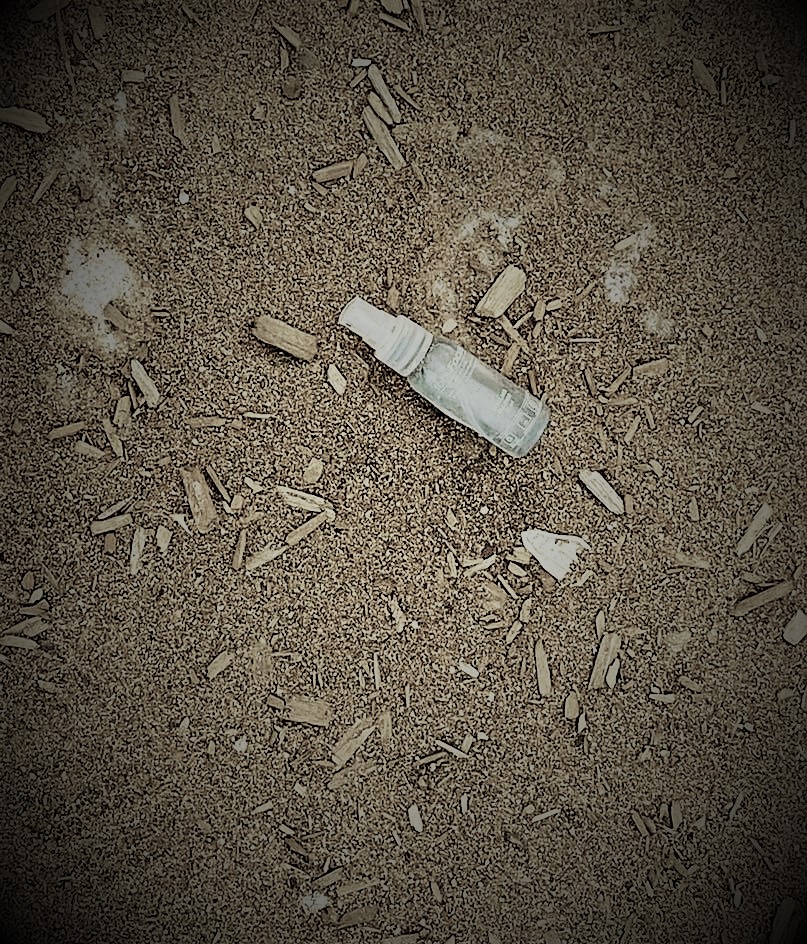

While some companies have developed biodegradable masks, they are not as easily or as quickly produced, not as readily available, and not as affordable as the non-biodegradable masks. And so, tonnes and tonnes of biomedical waste in the form of PPE has steadily, assuredly filled our landfills, and worse, littered our environment. How will we clean up after this is all over?

Judging by how easily one spots this pandemic garbage, it will remain in our environment, unclaimed, undisturbed, for some time to come, a haphazard memorial of the pandemic’s disruption of our daily life, the constriction and restrictions within which we chose to live in order to protect each other.
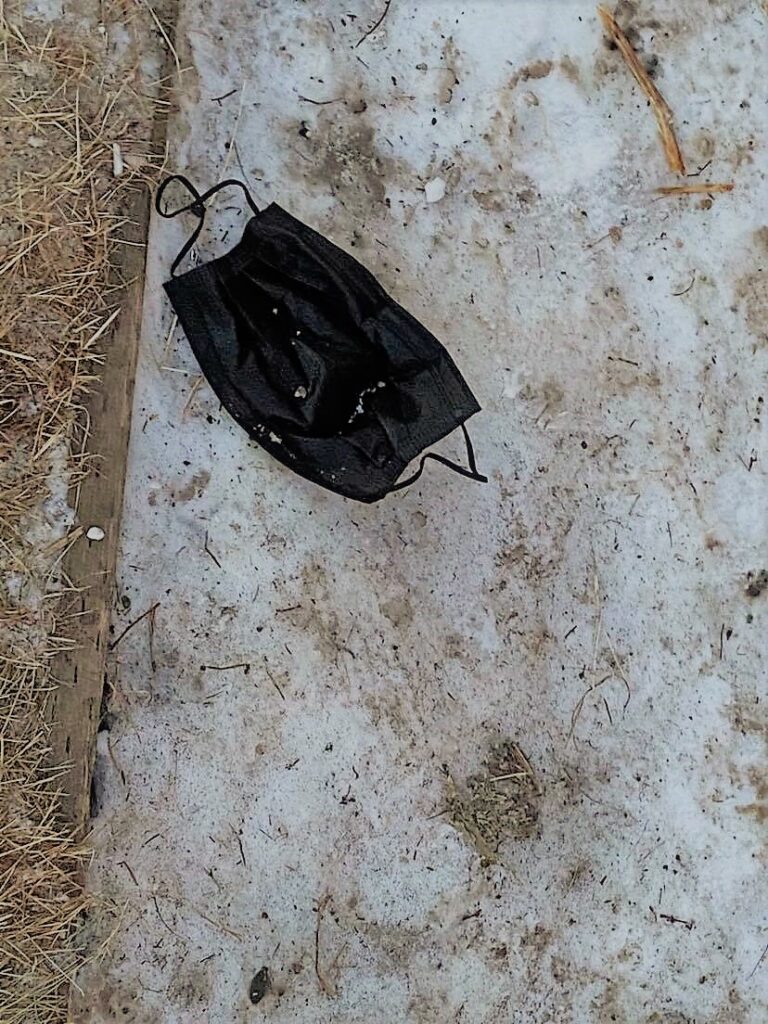
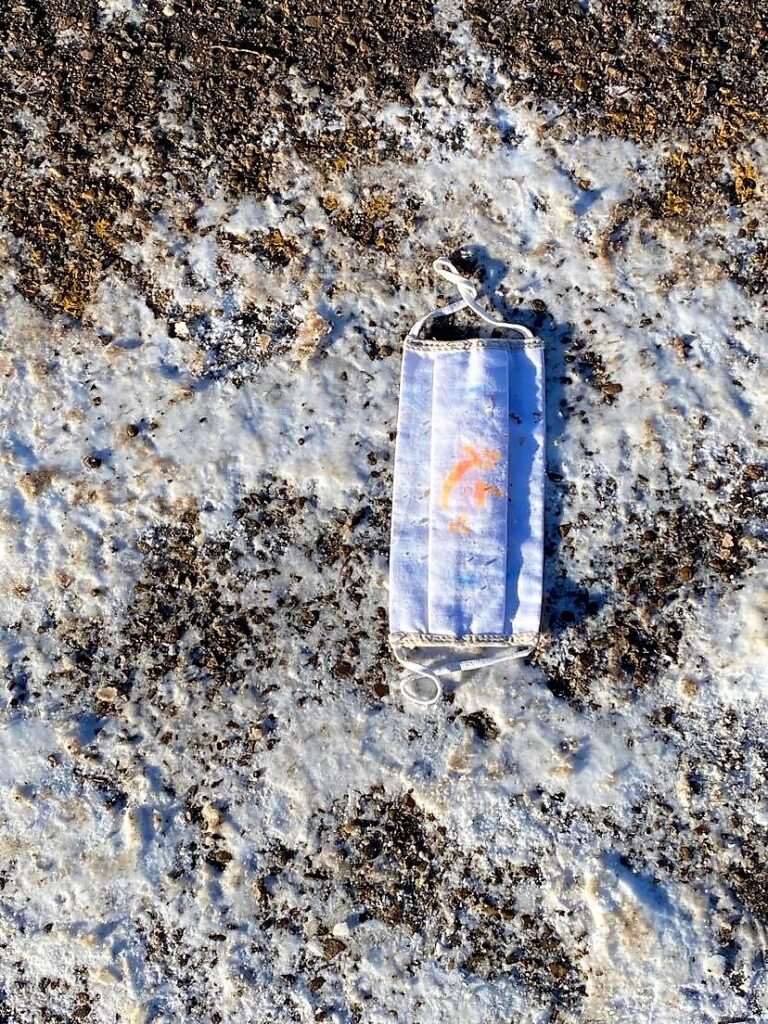
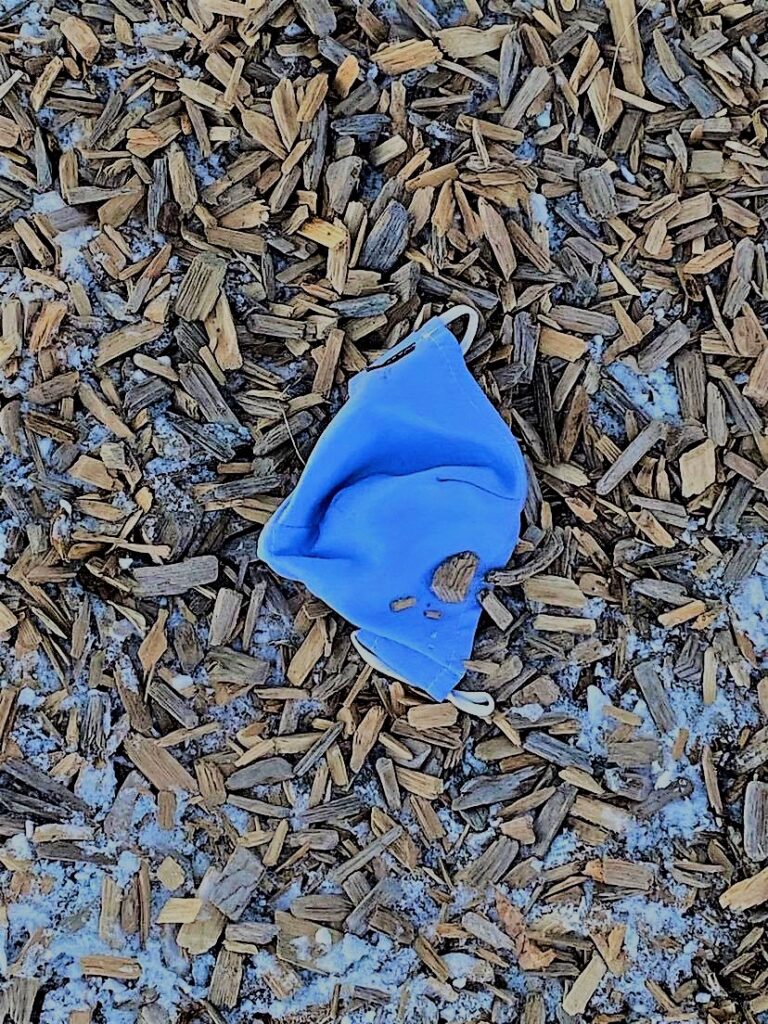
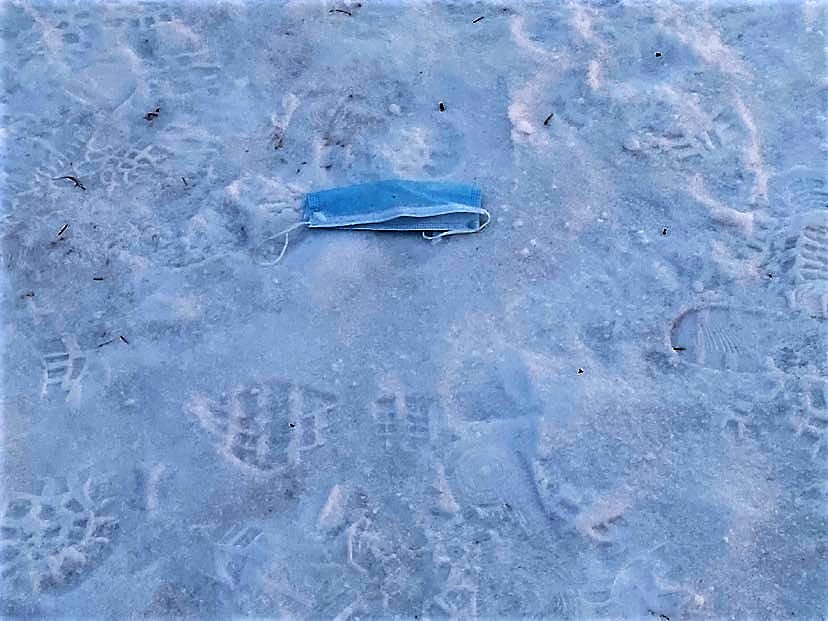
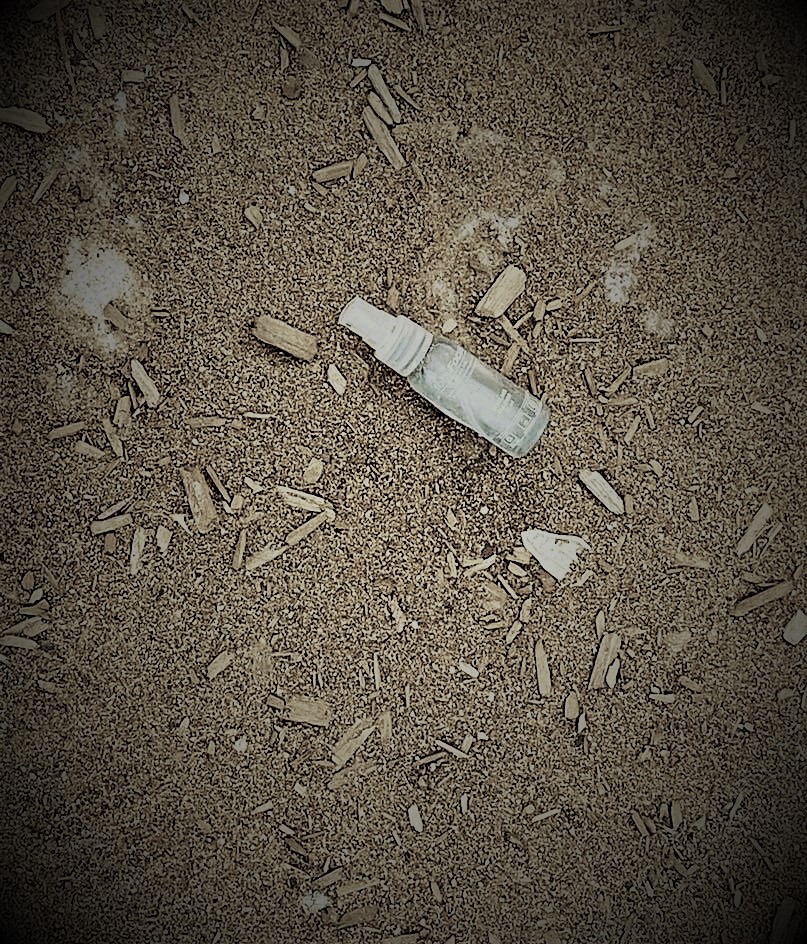
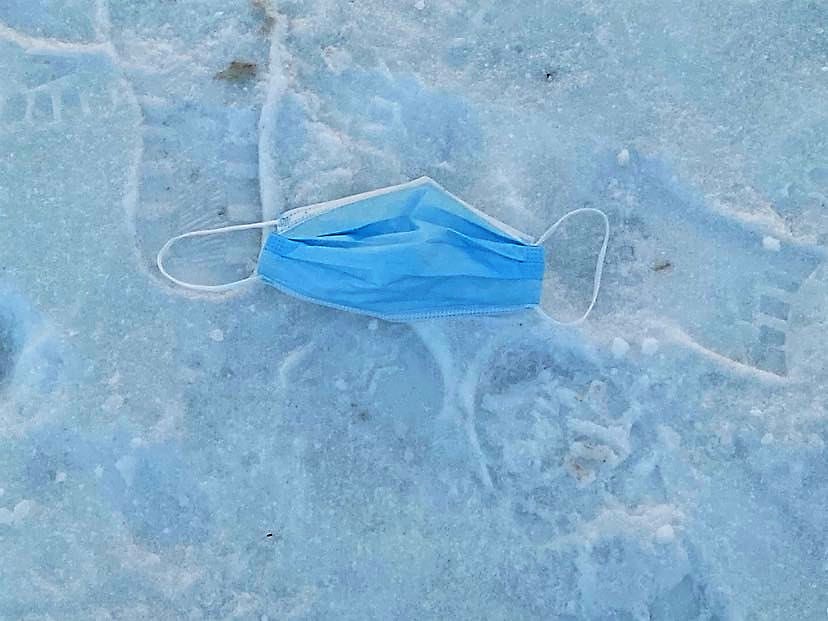
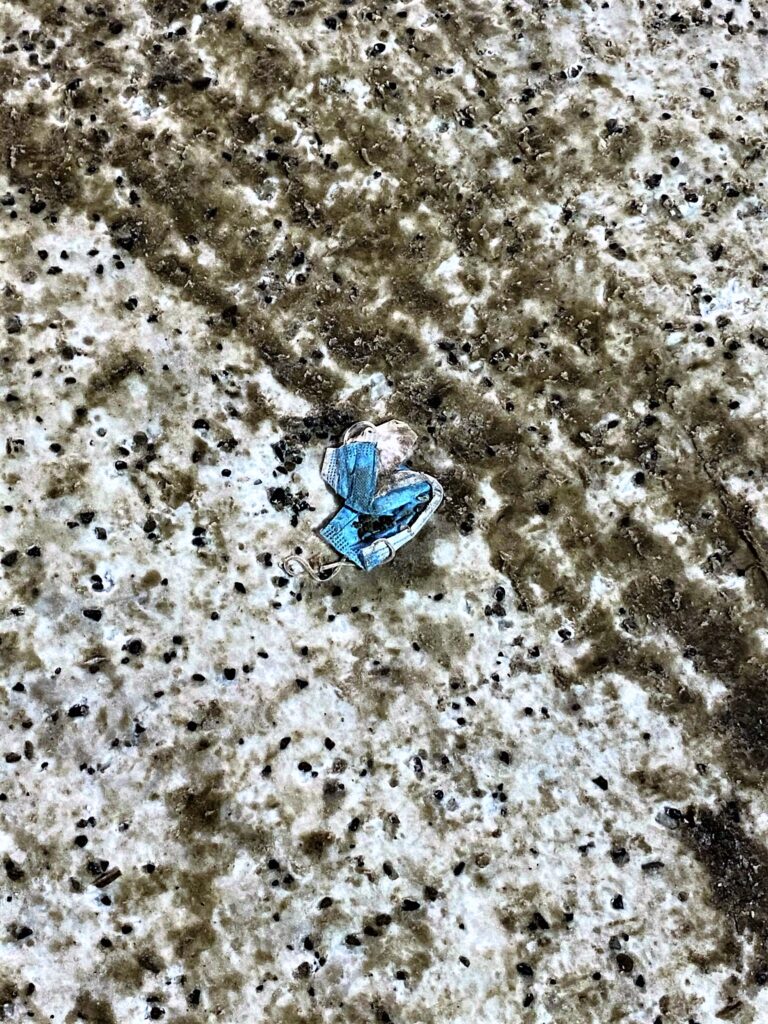
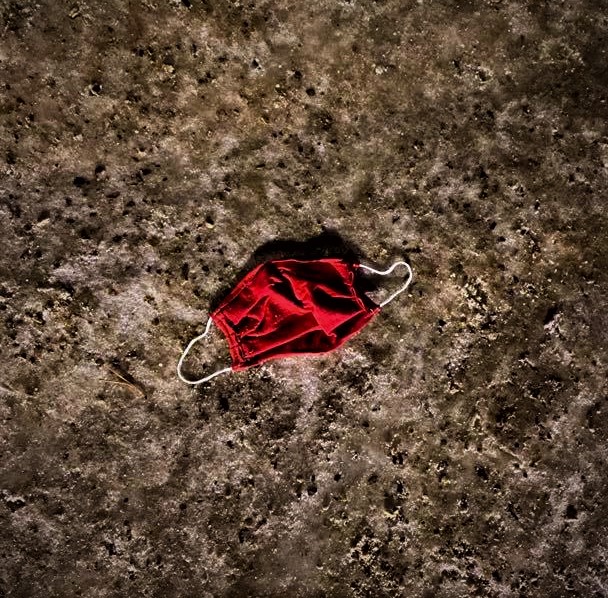
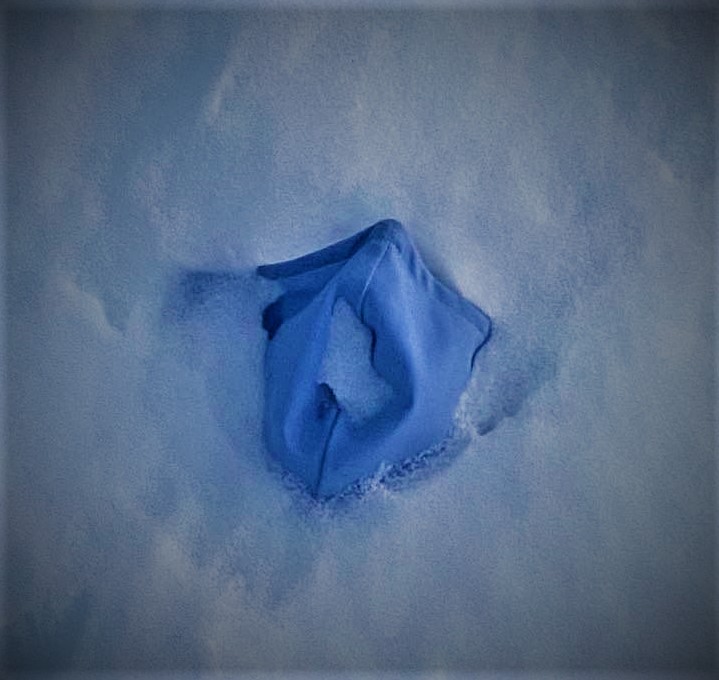
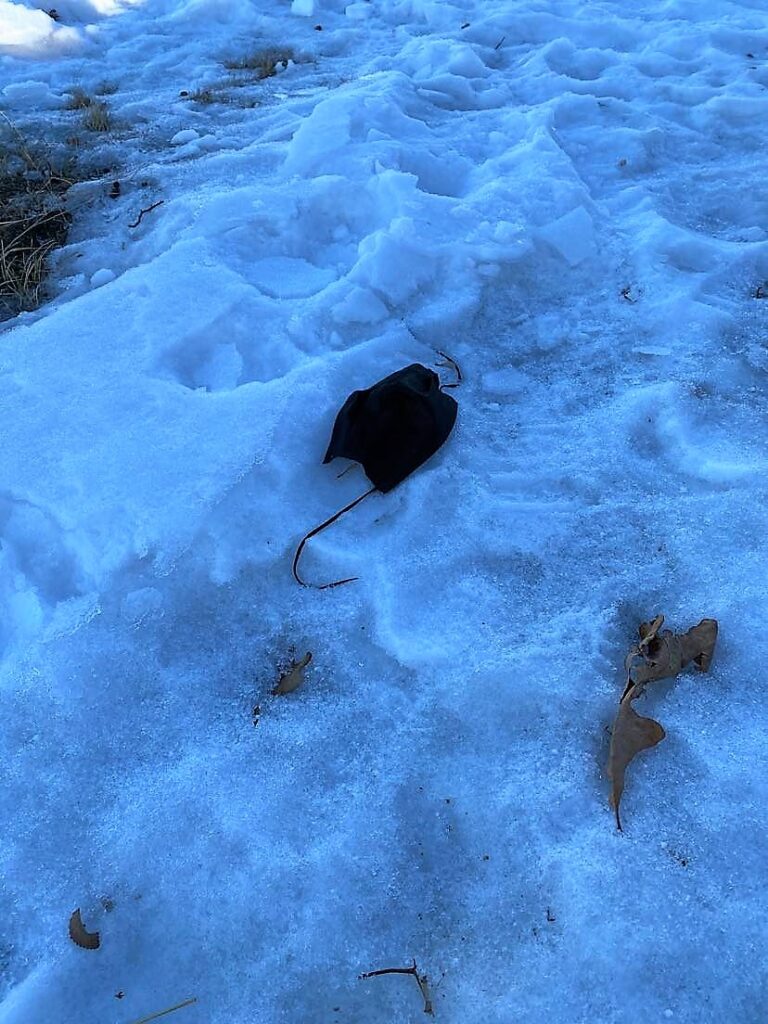
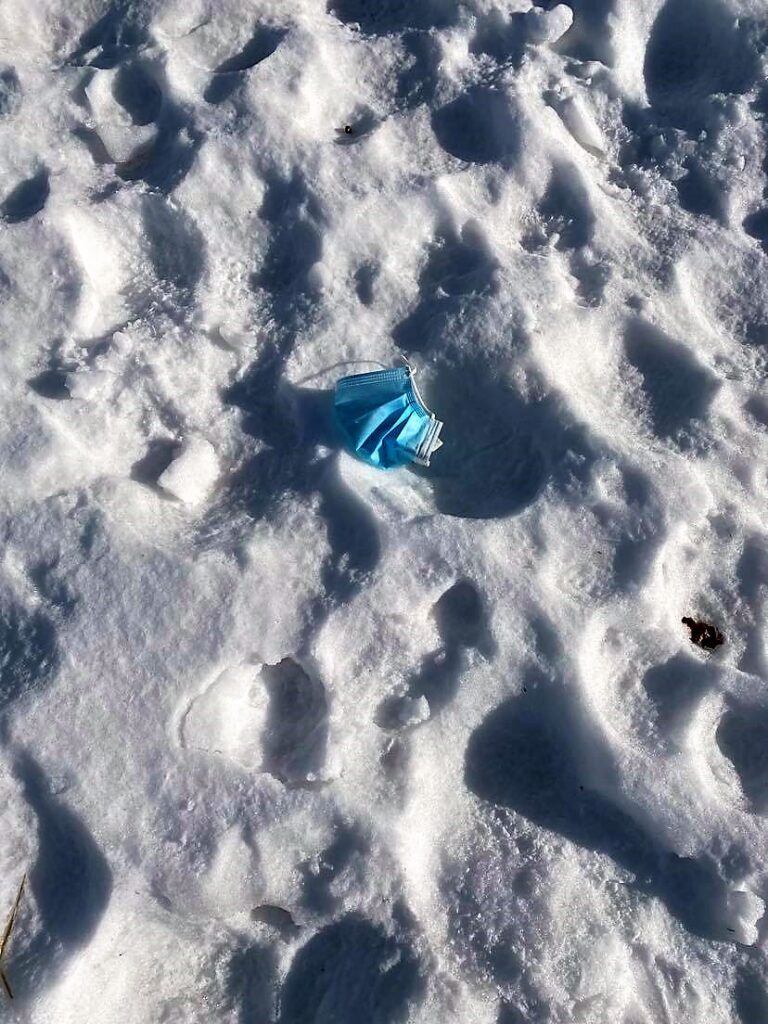
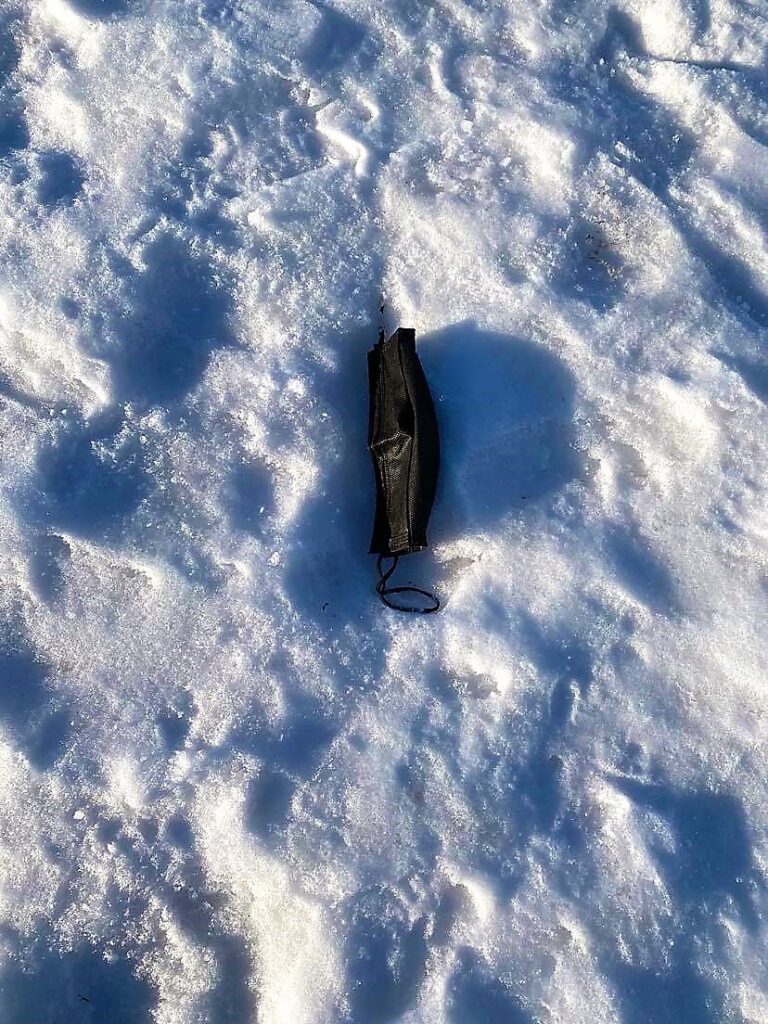
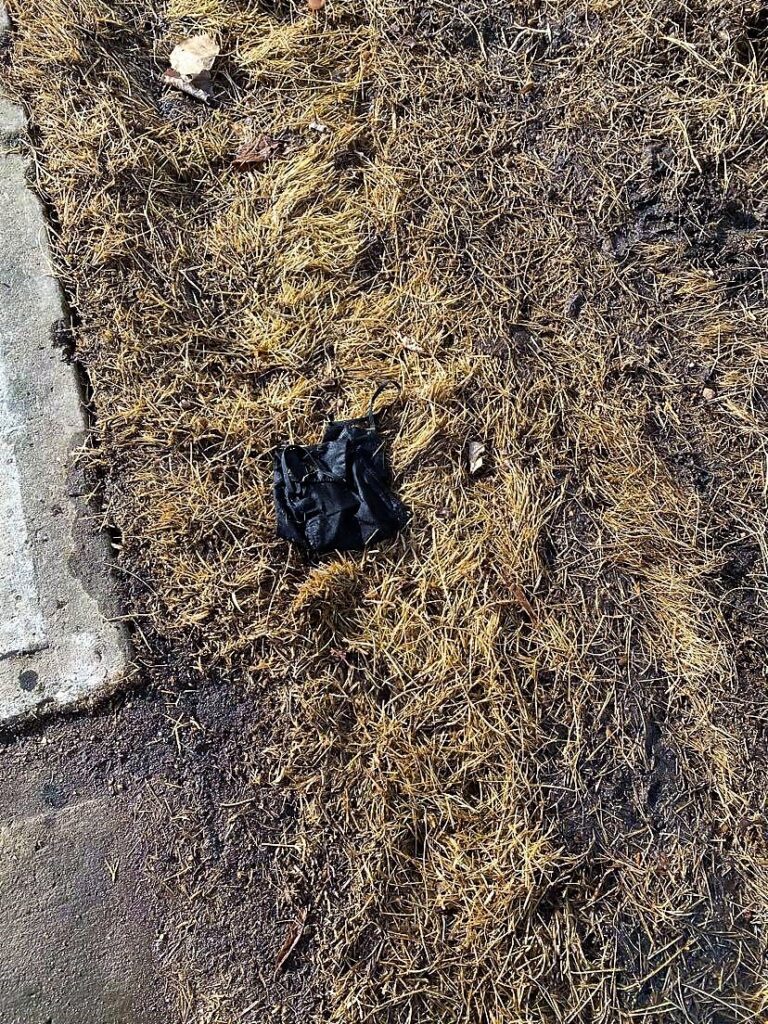
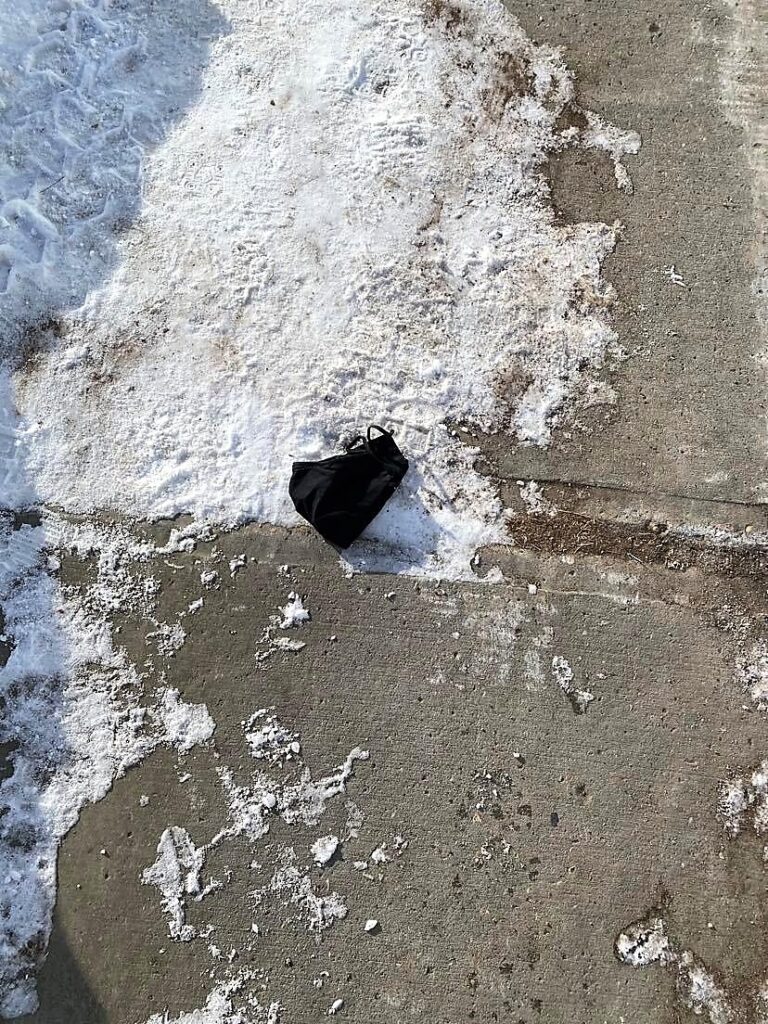
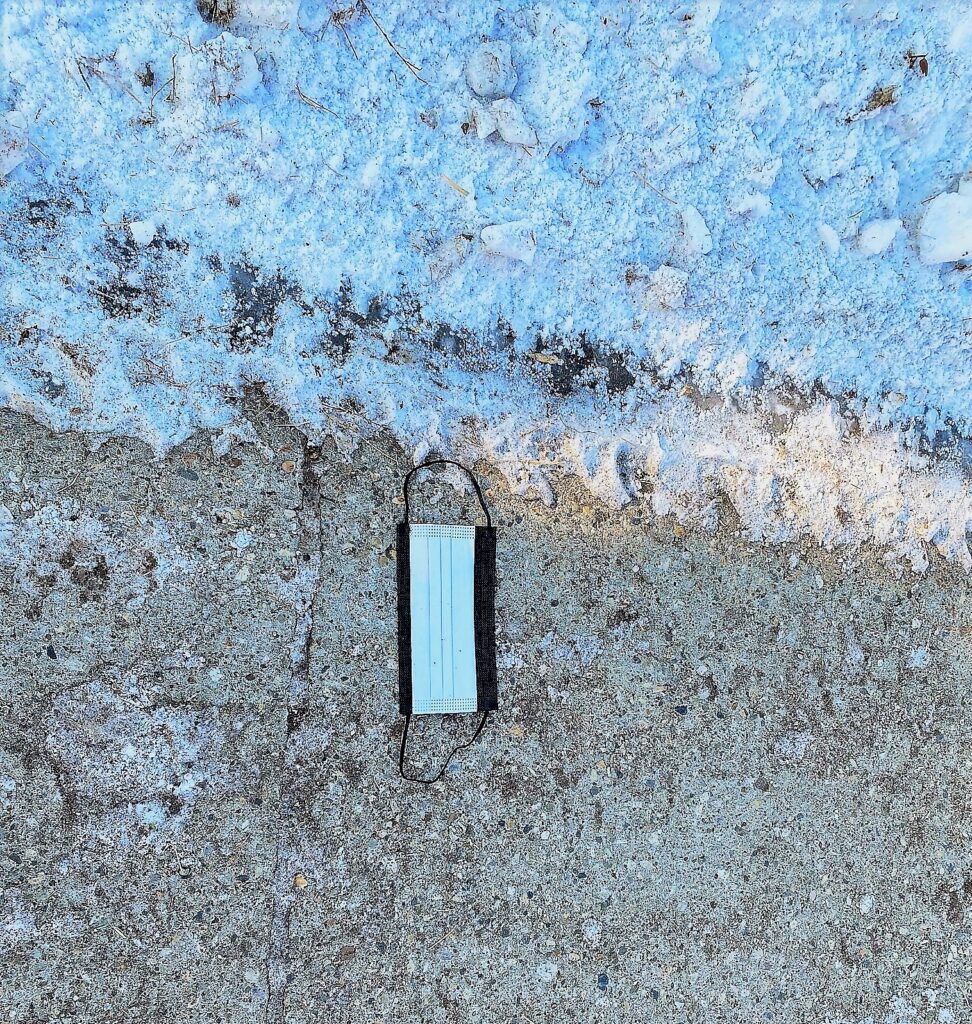
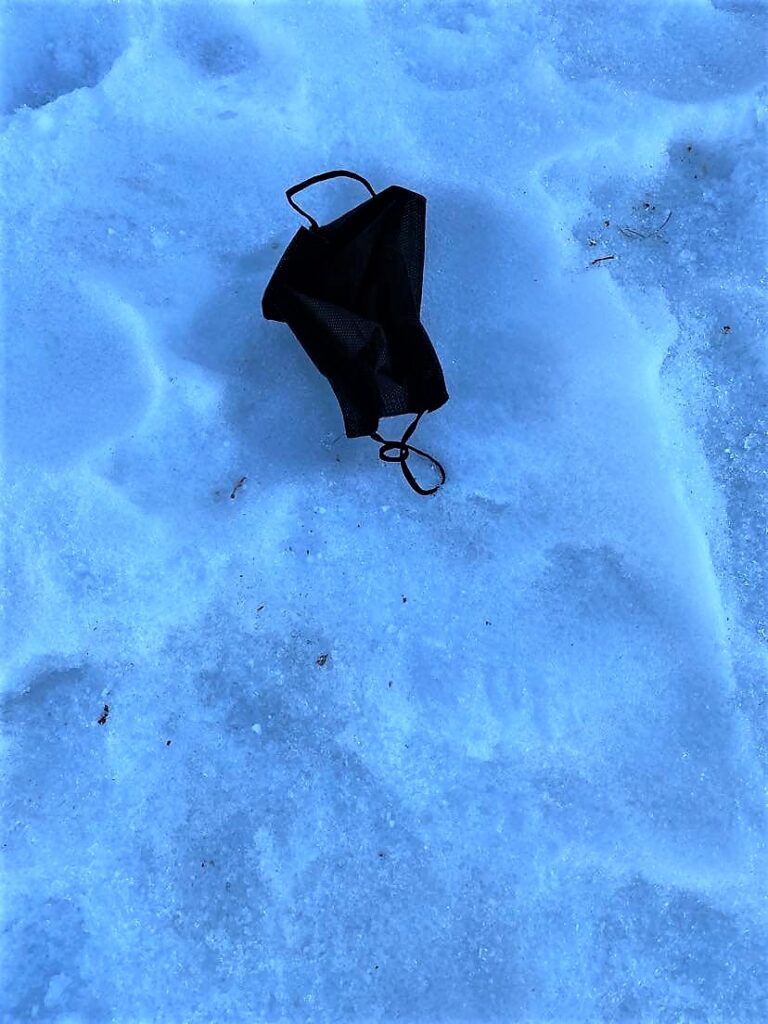
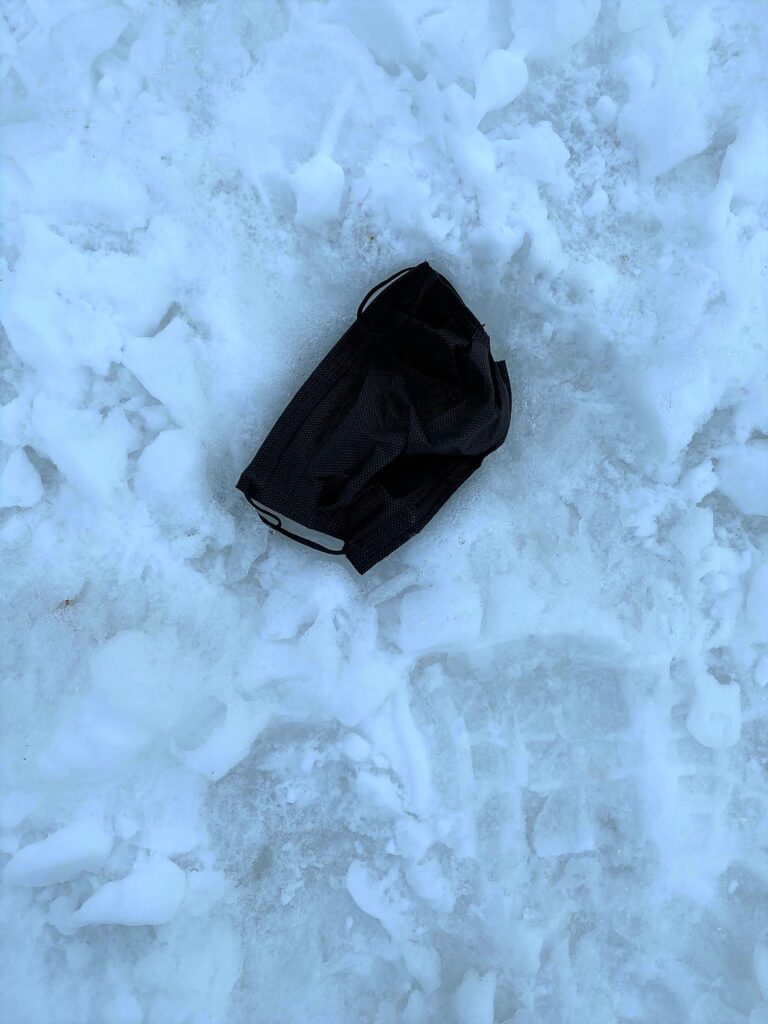
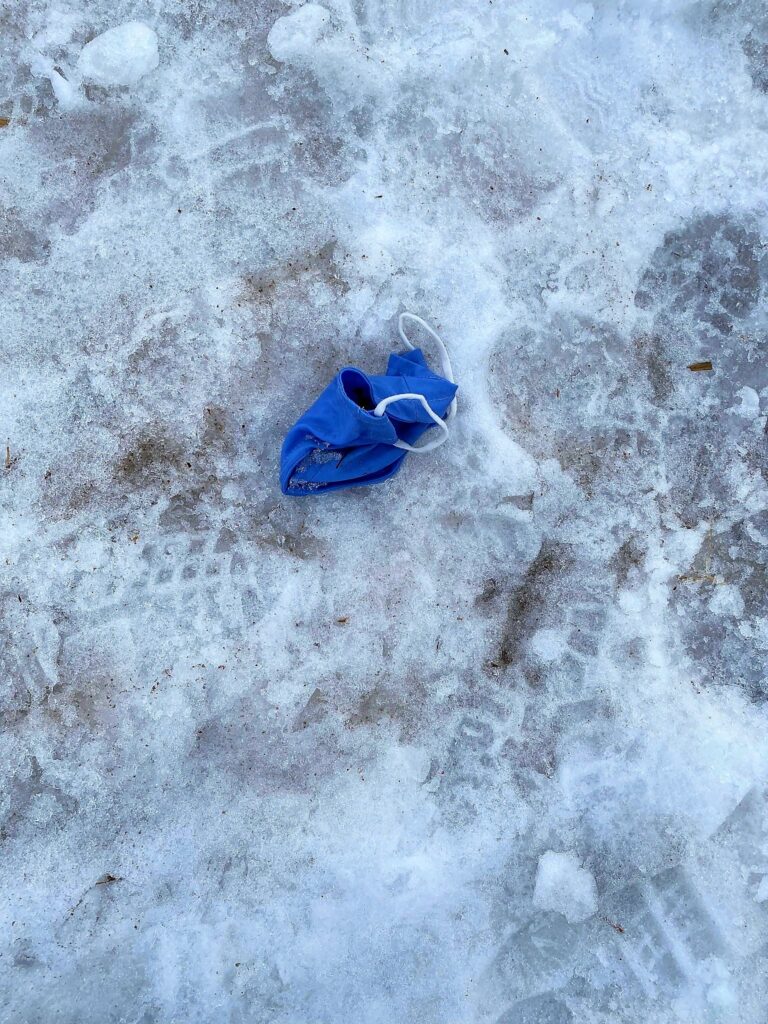
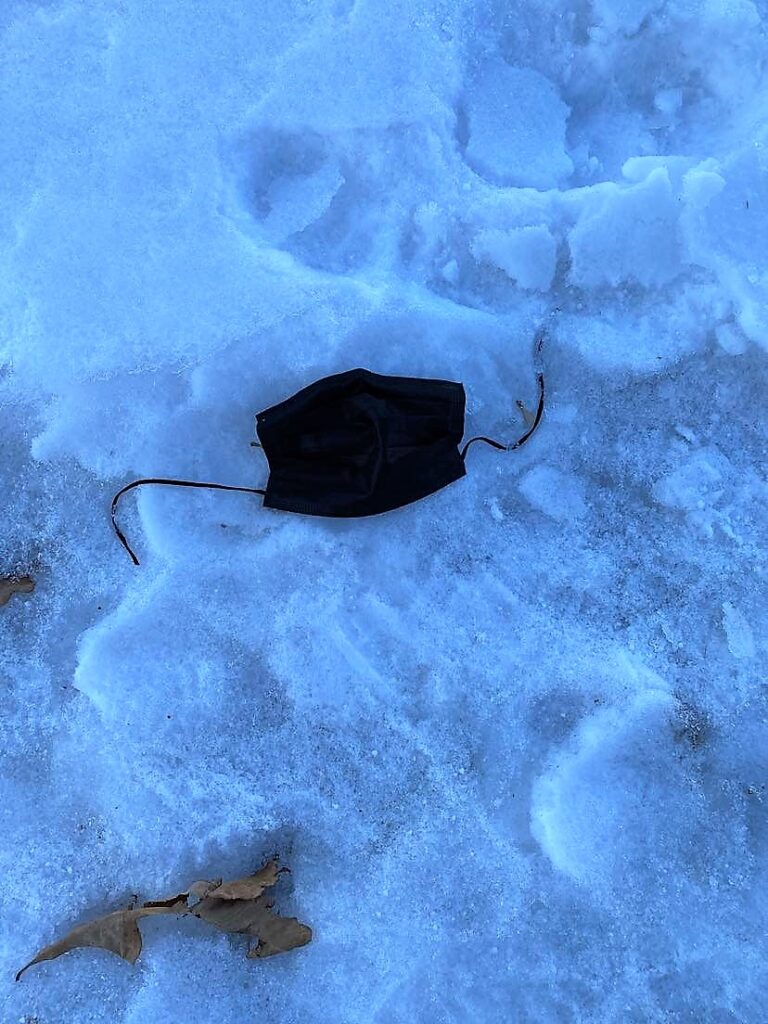
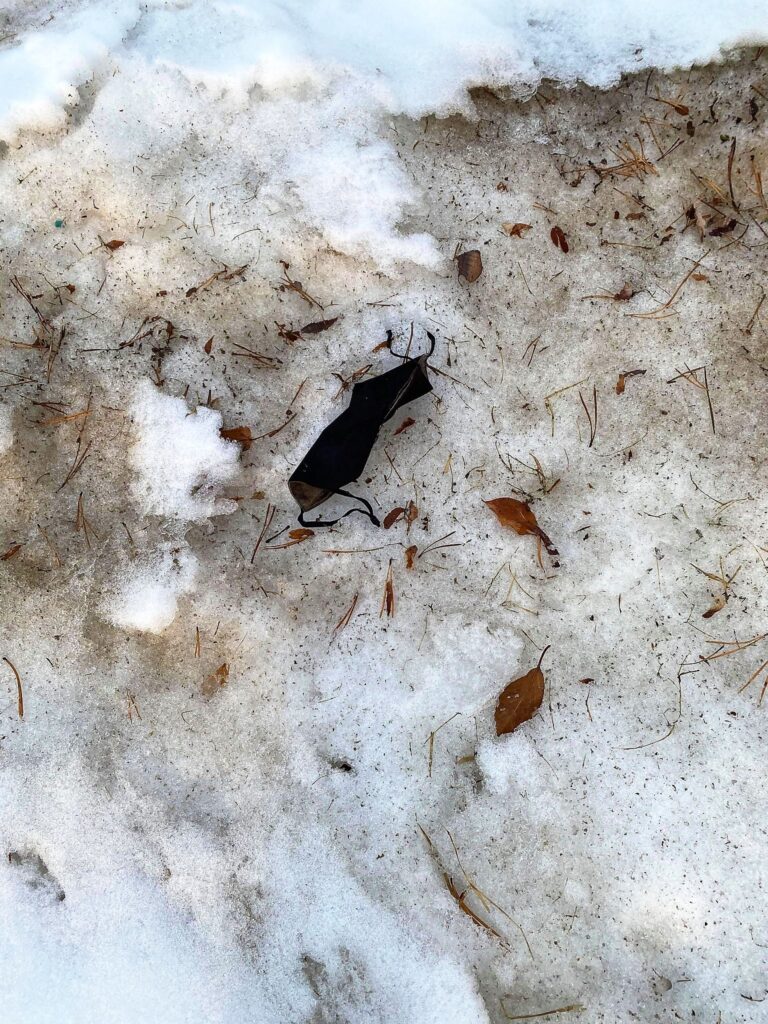
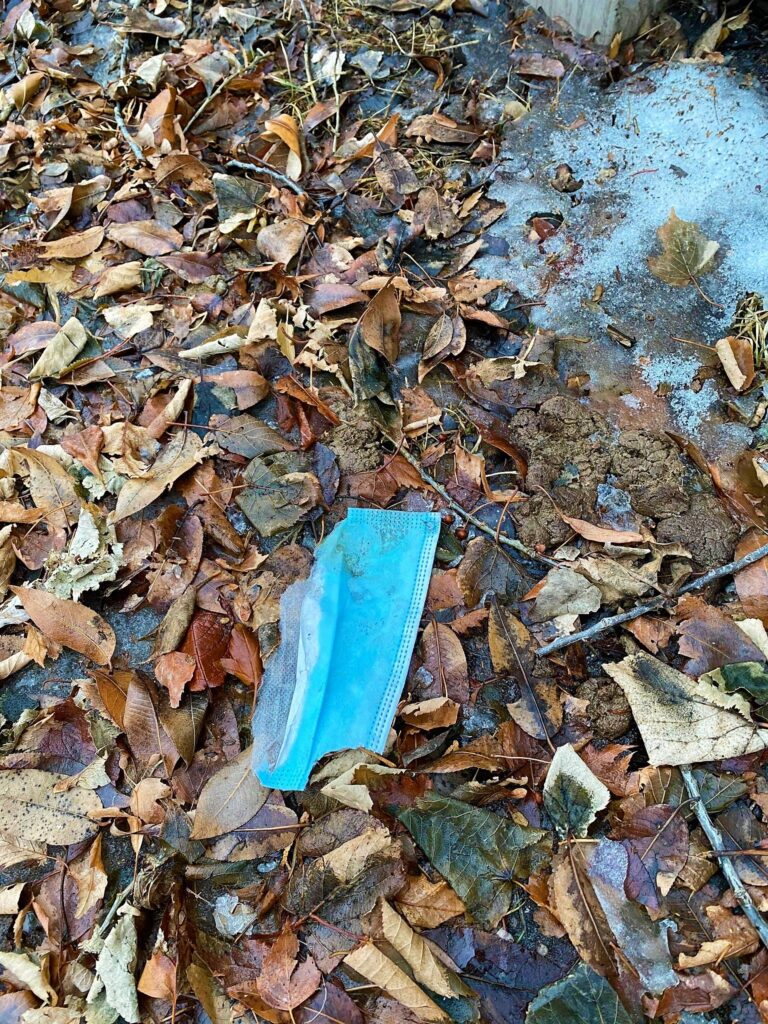
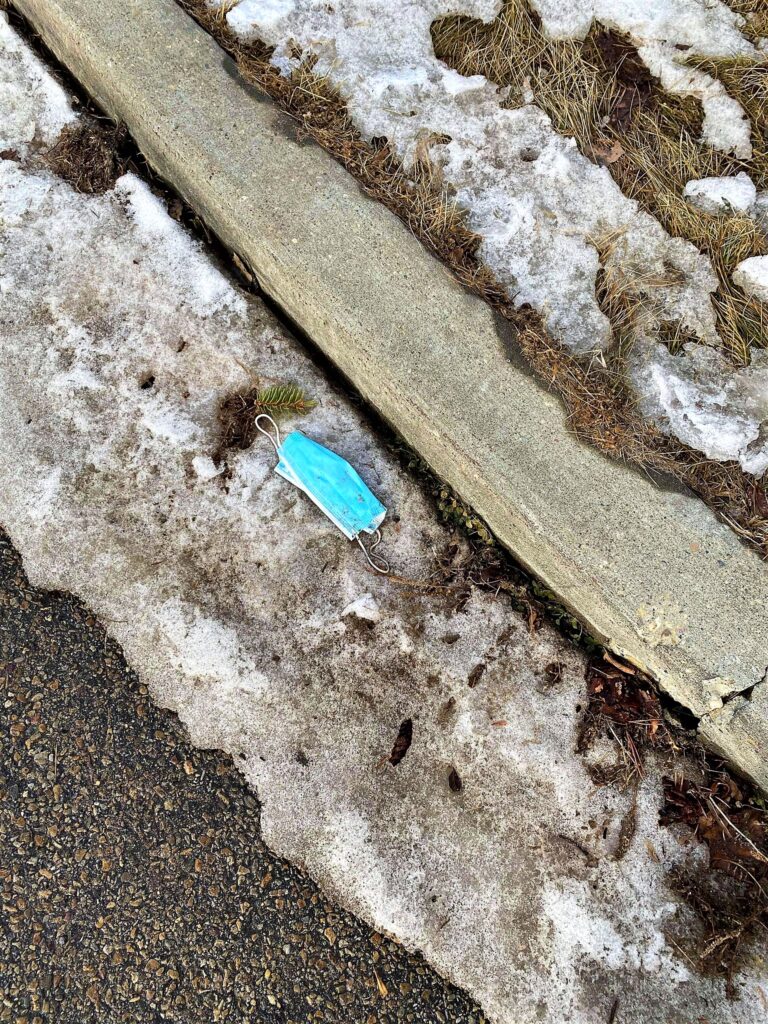
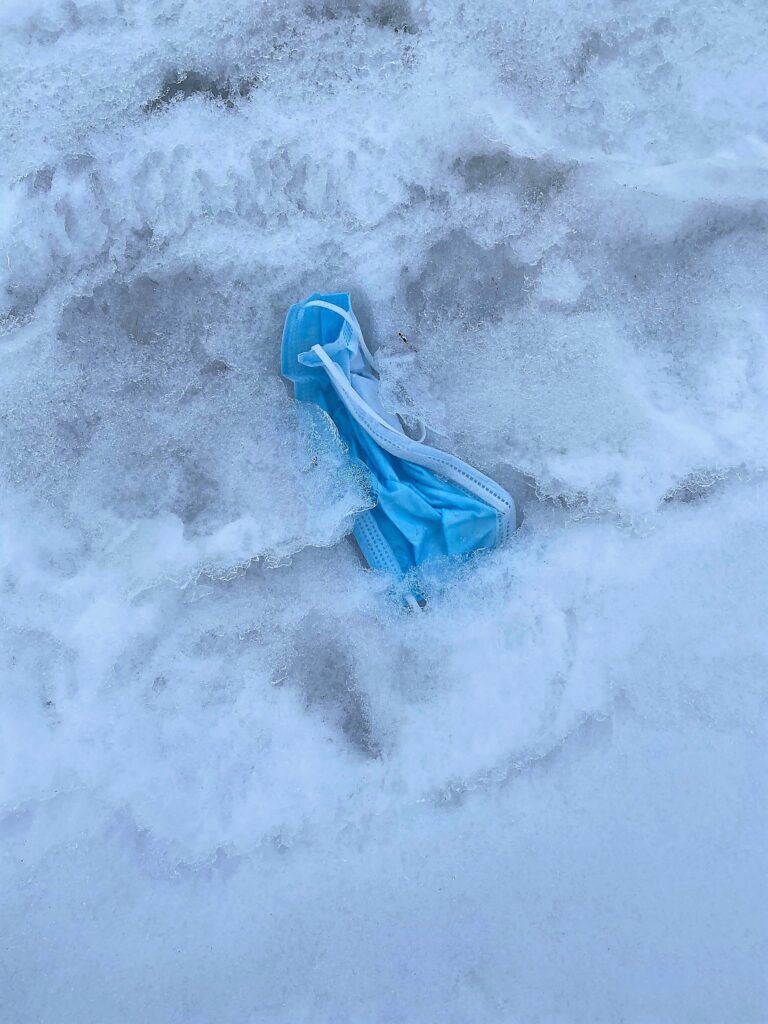
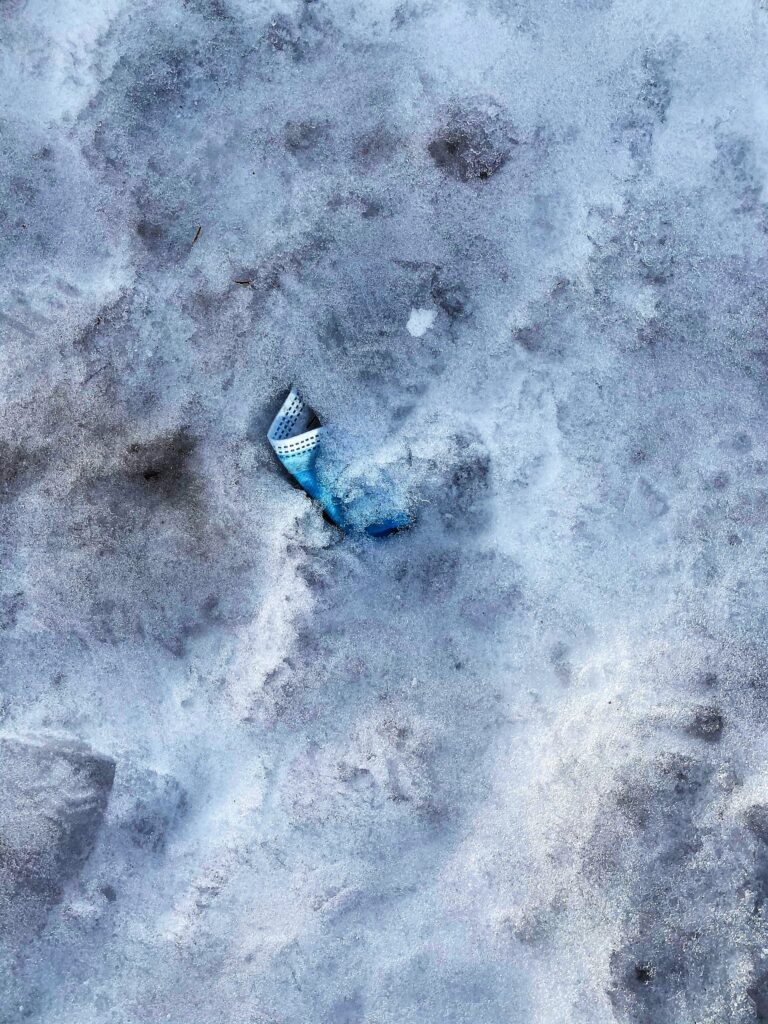
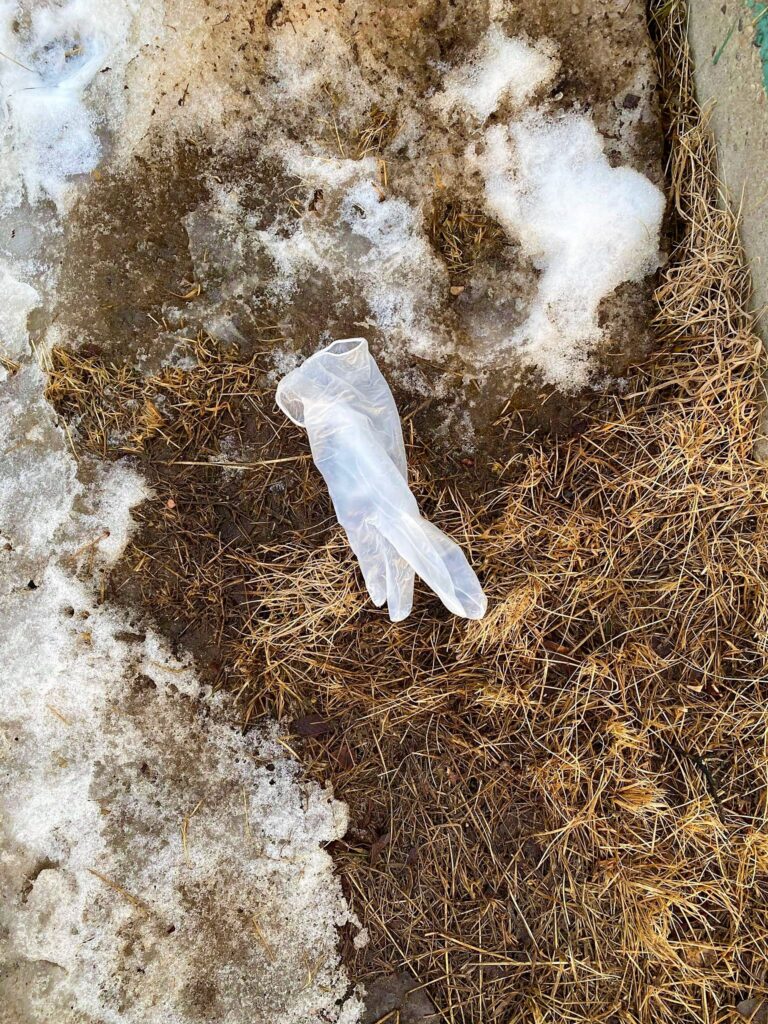
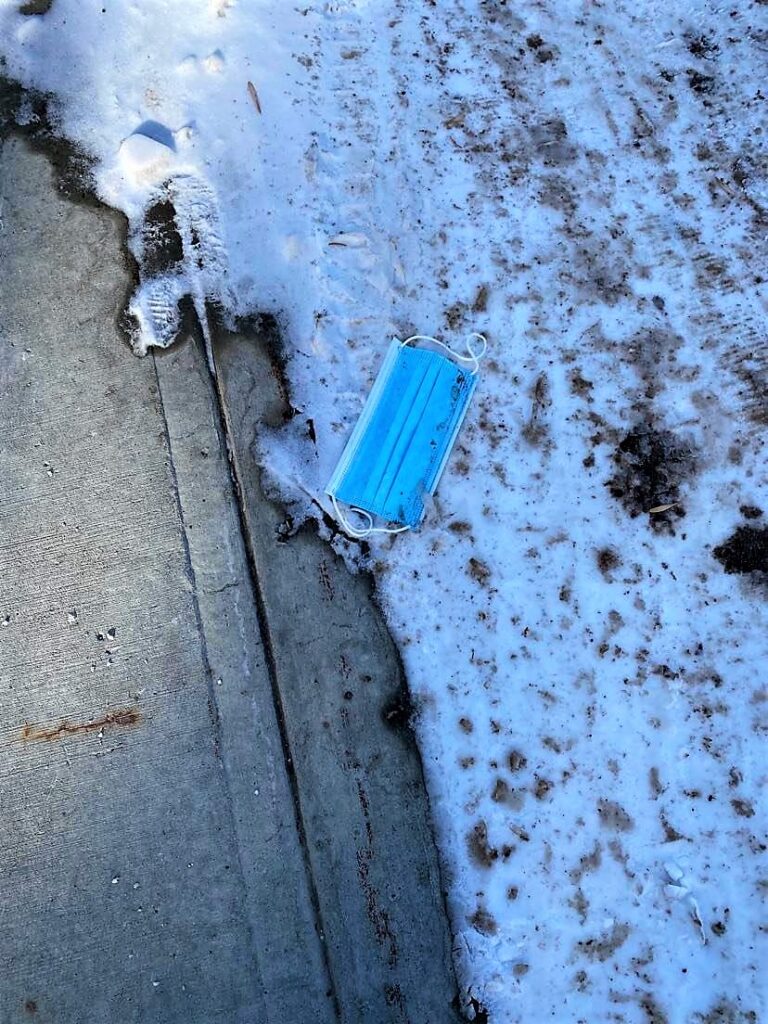
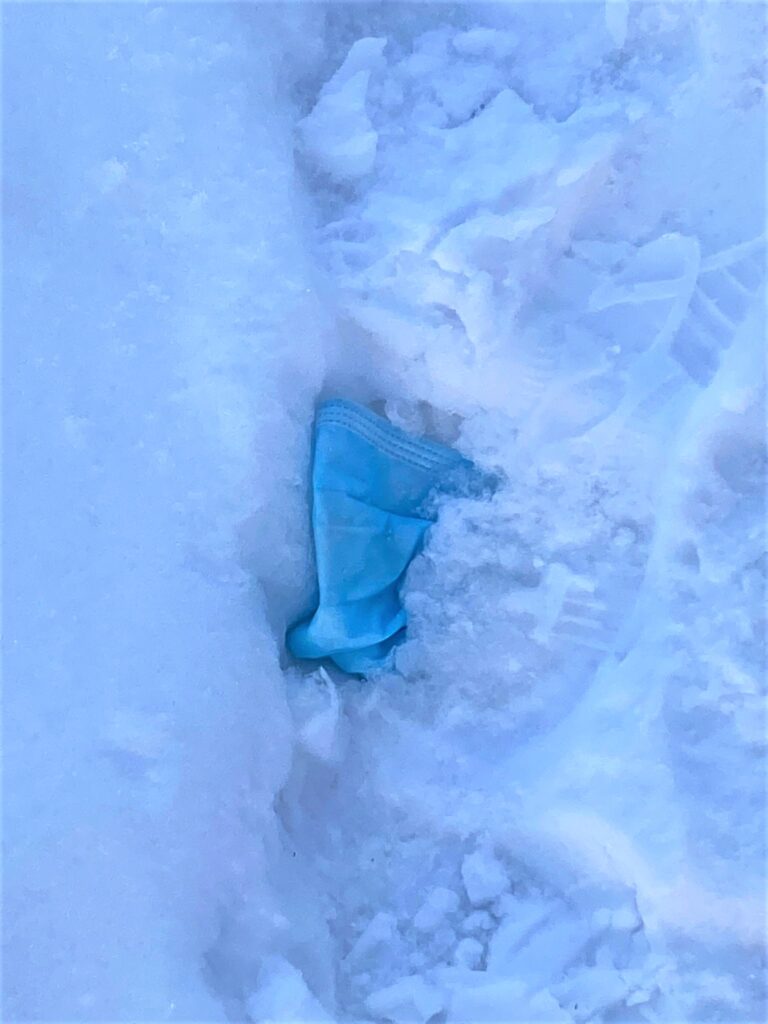
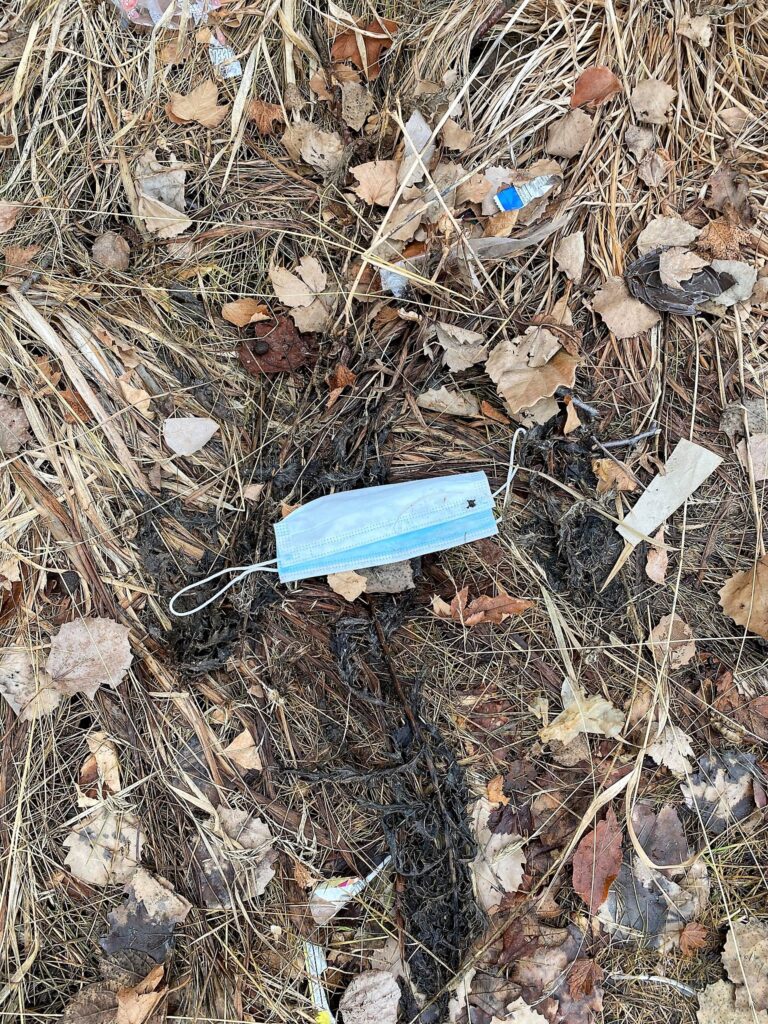
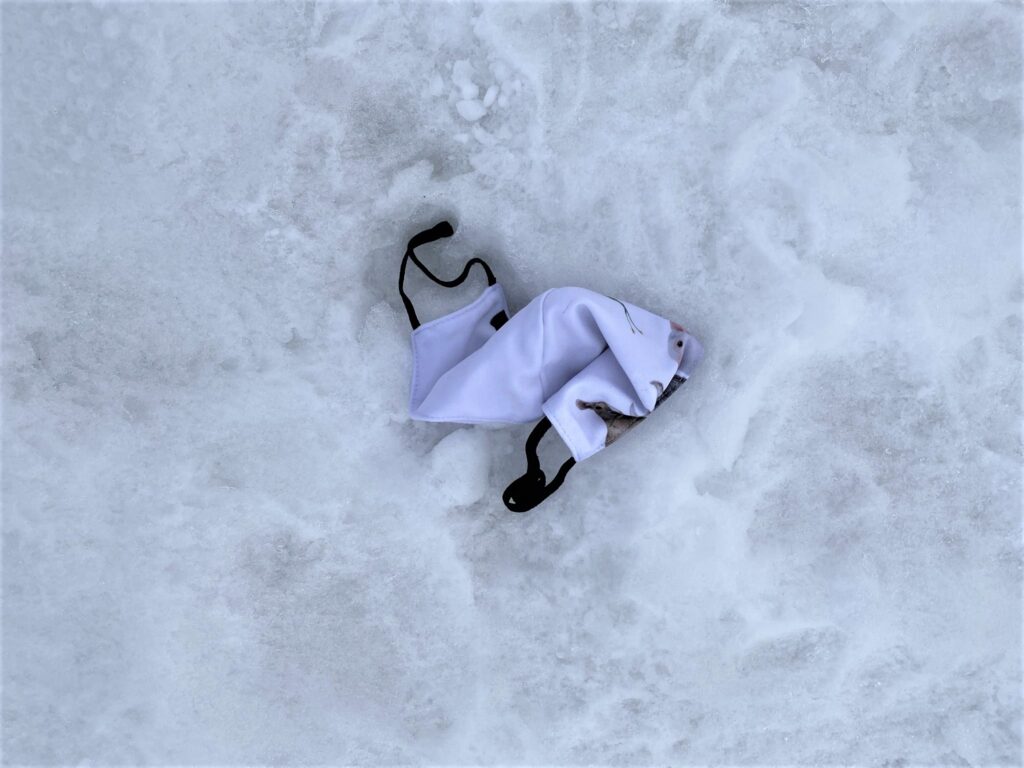
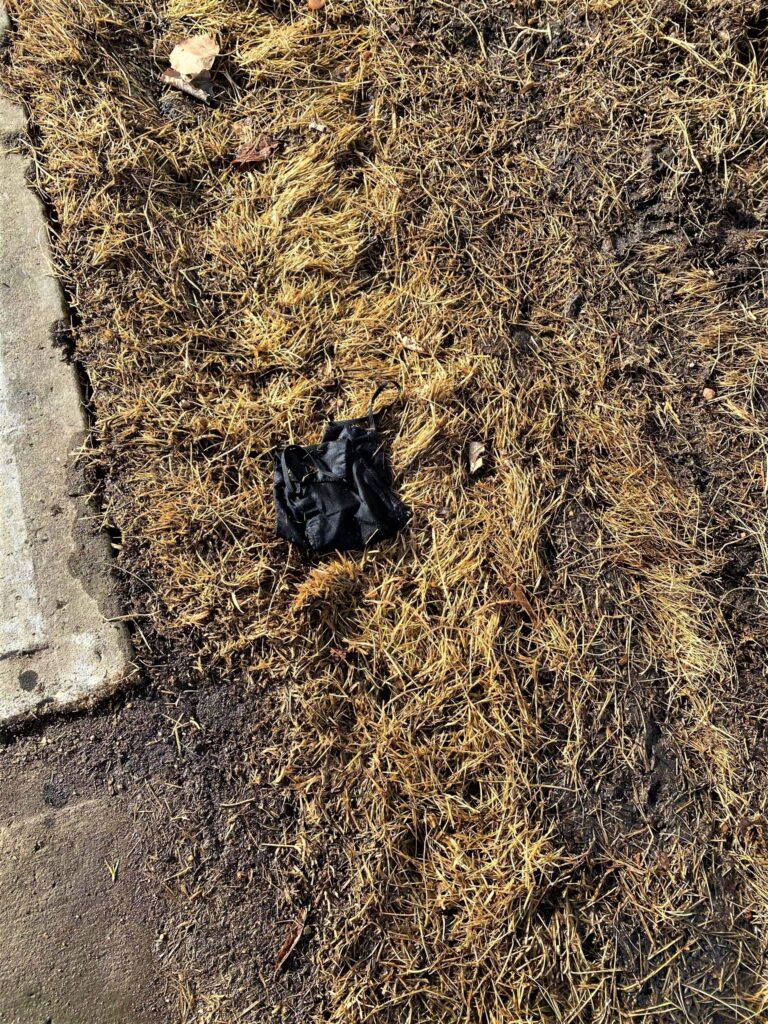
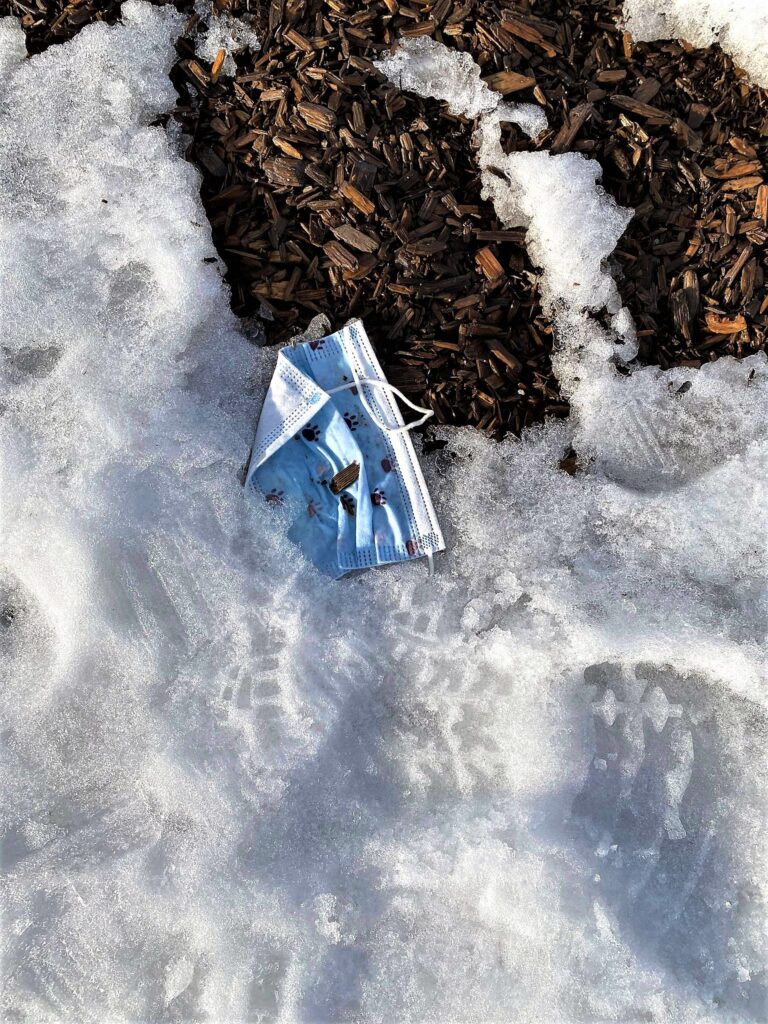
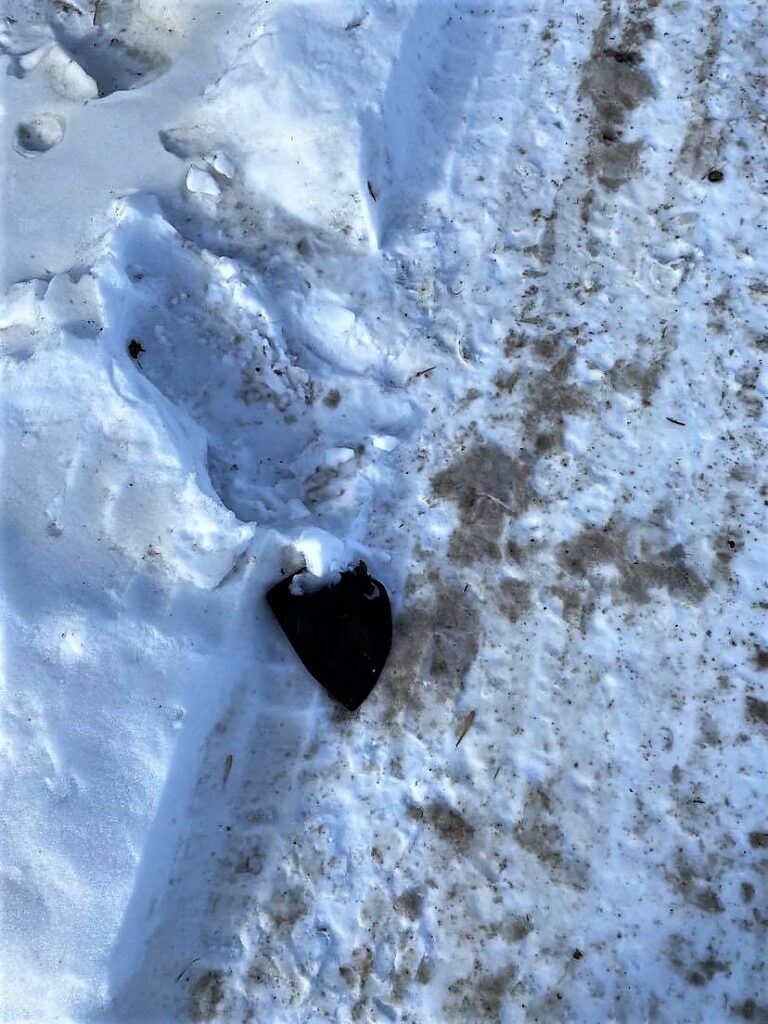
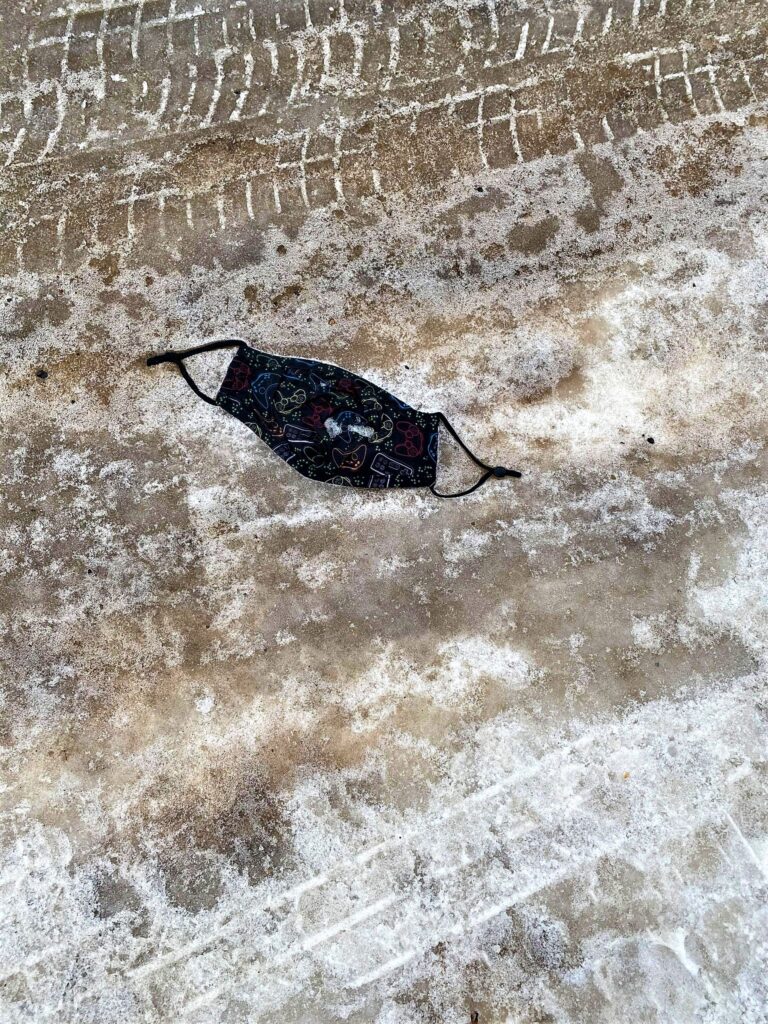
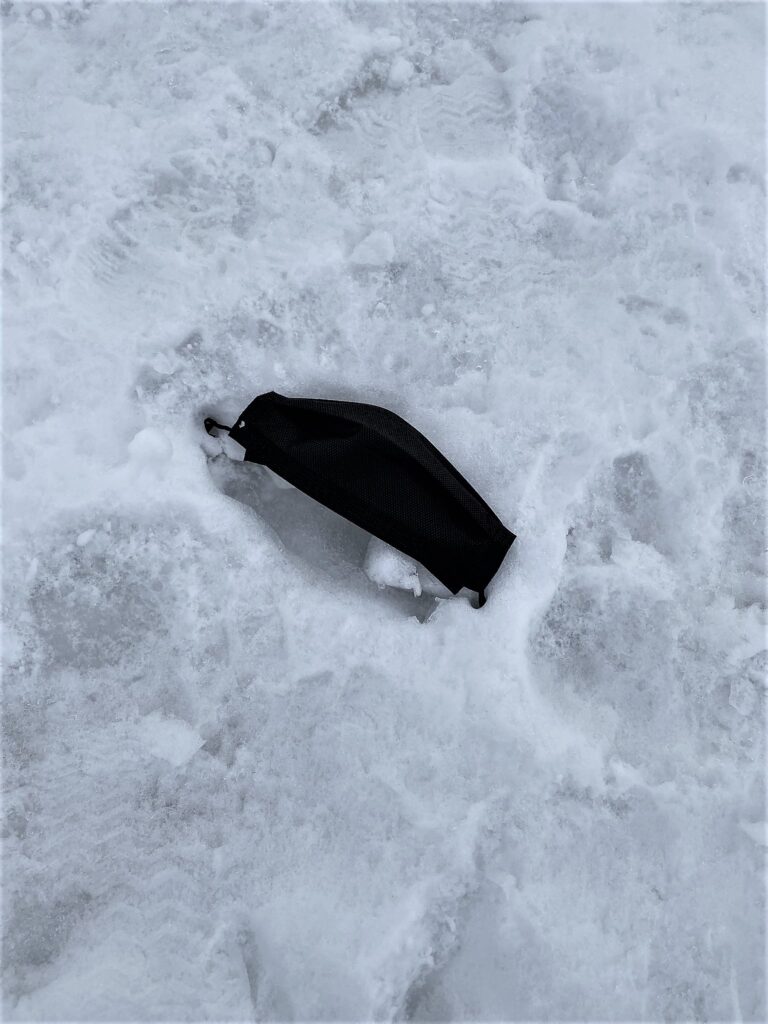
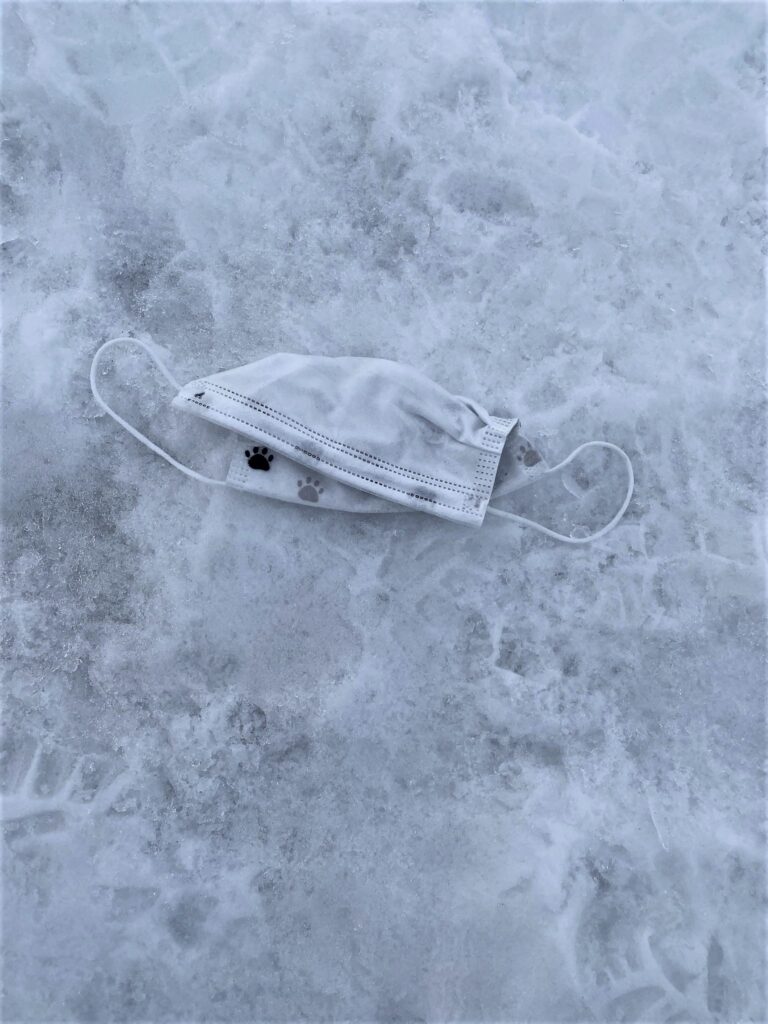
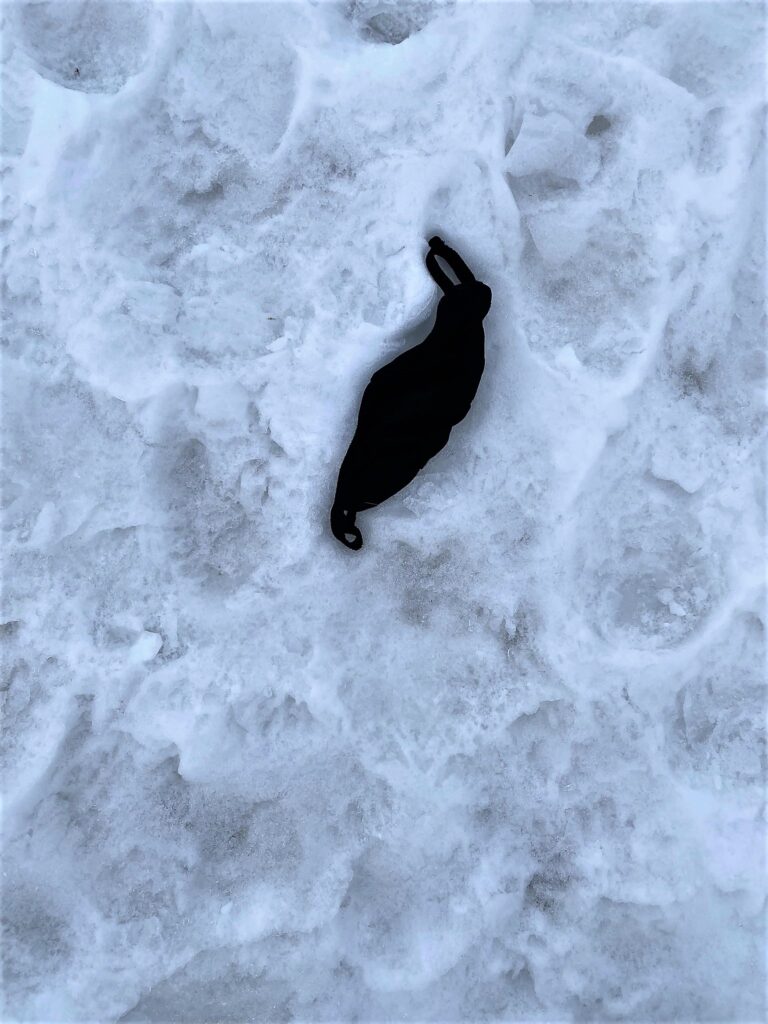
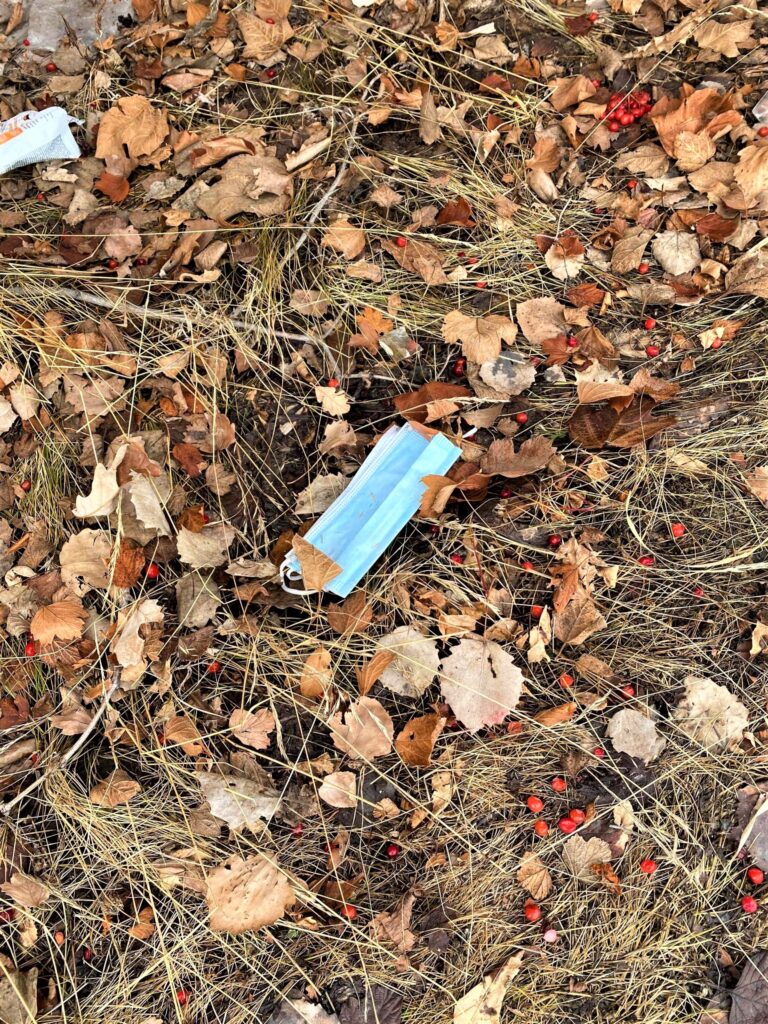
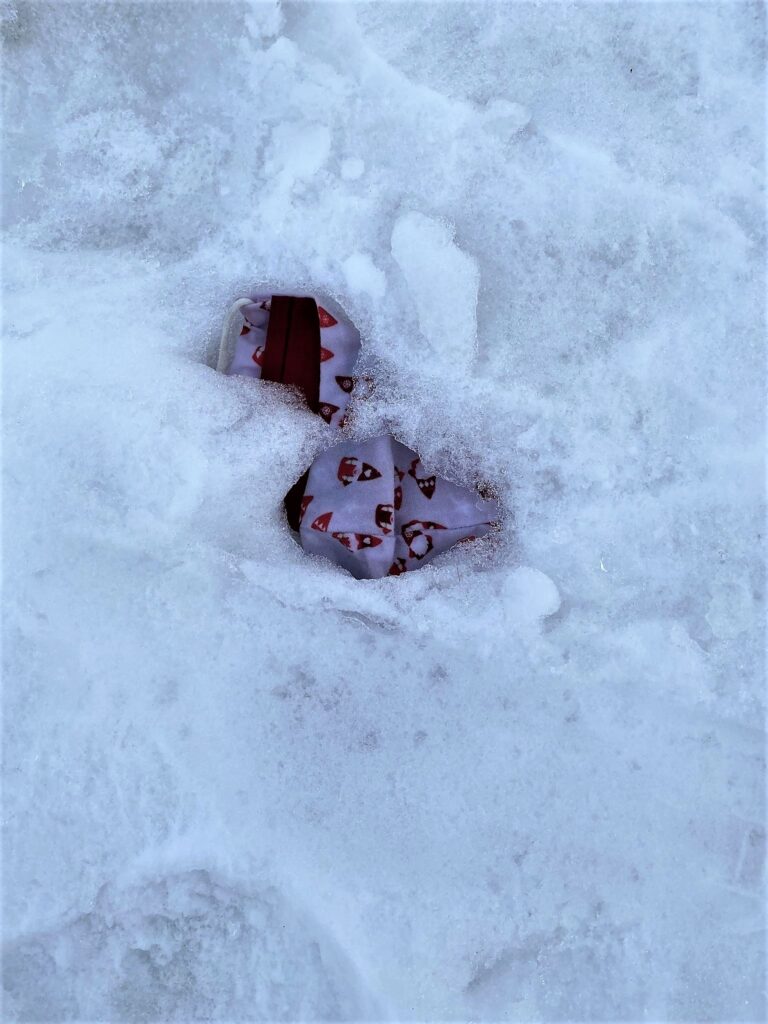
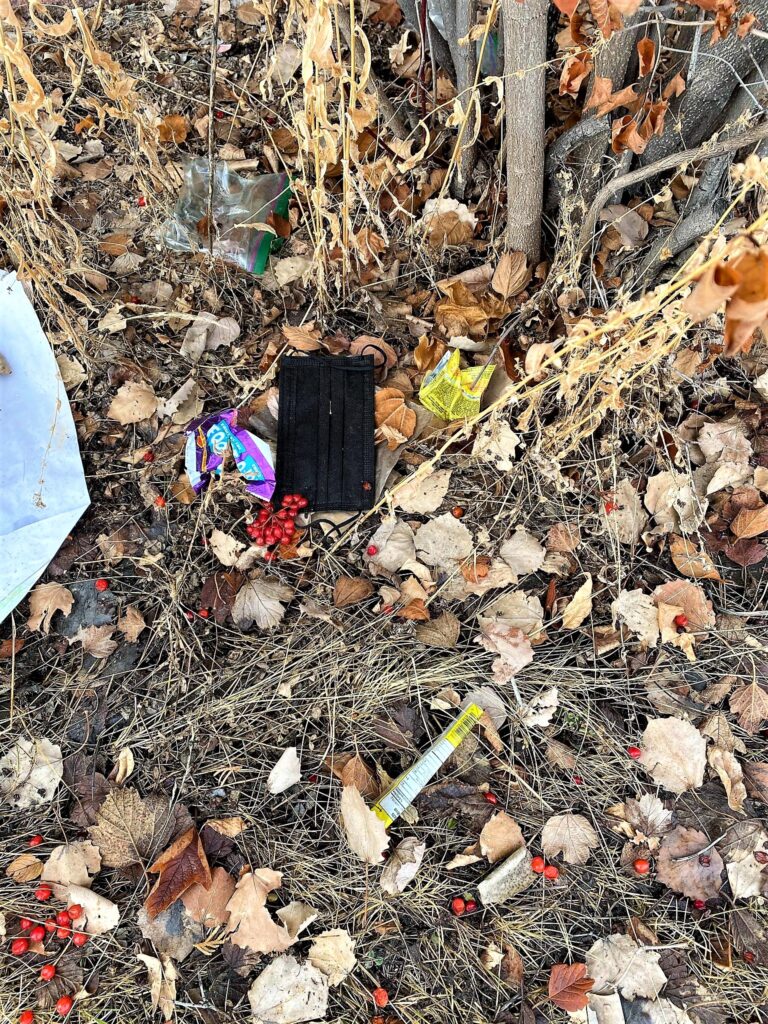
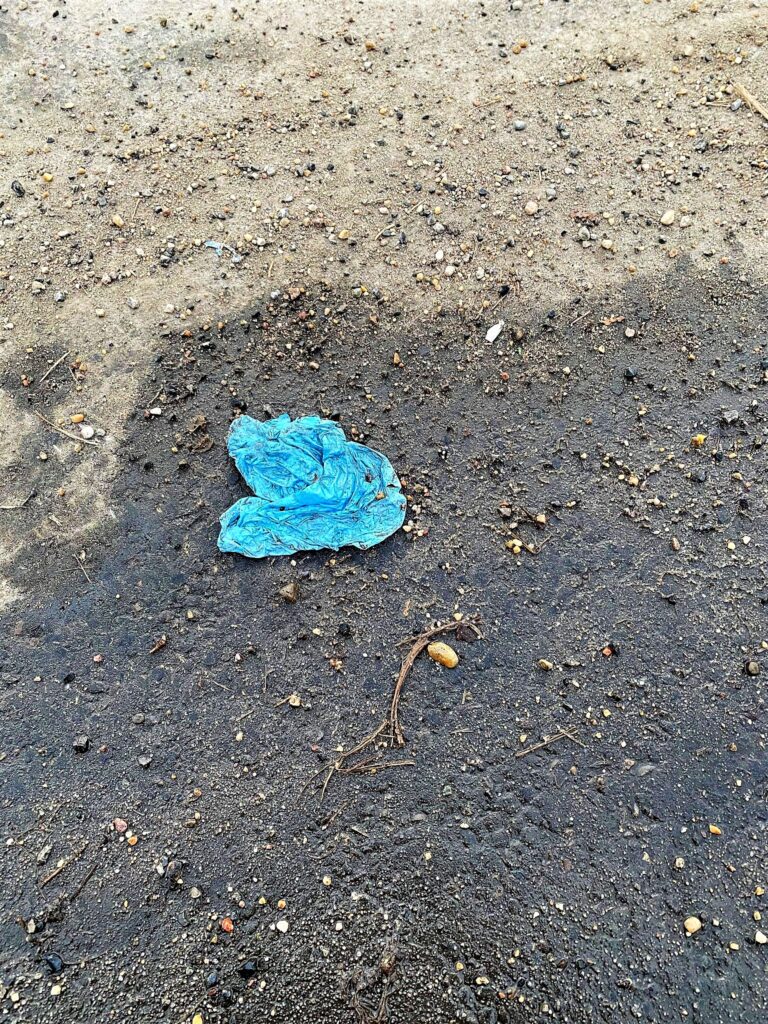
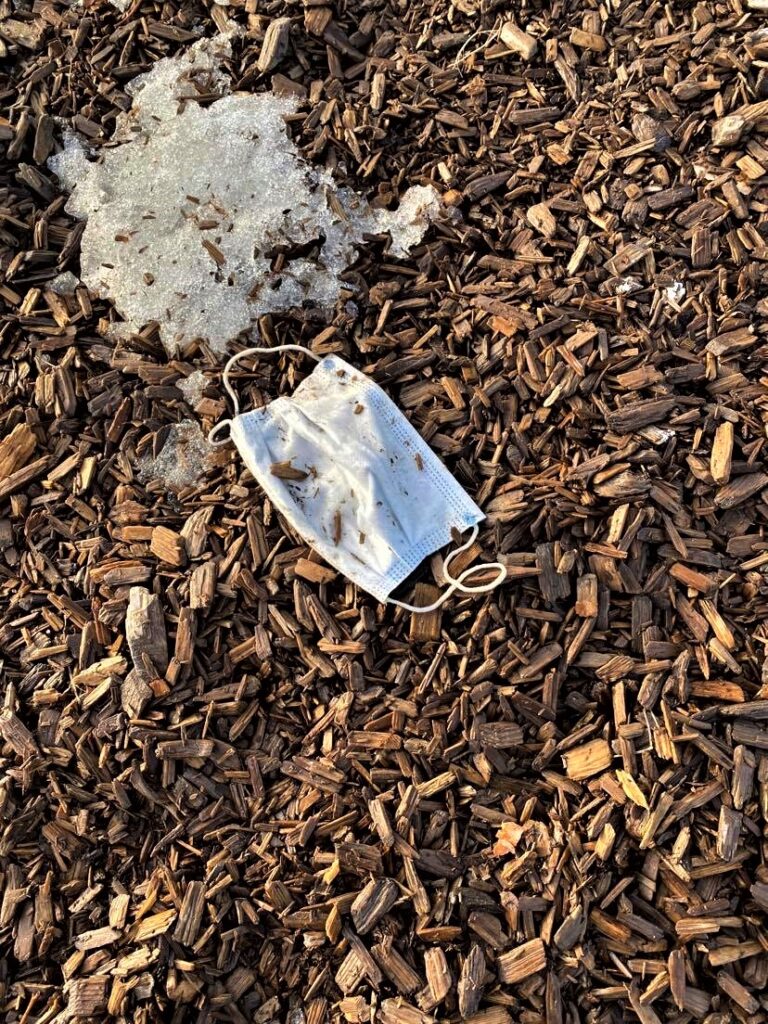
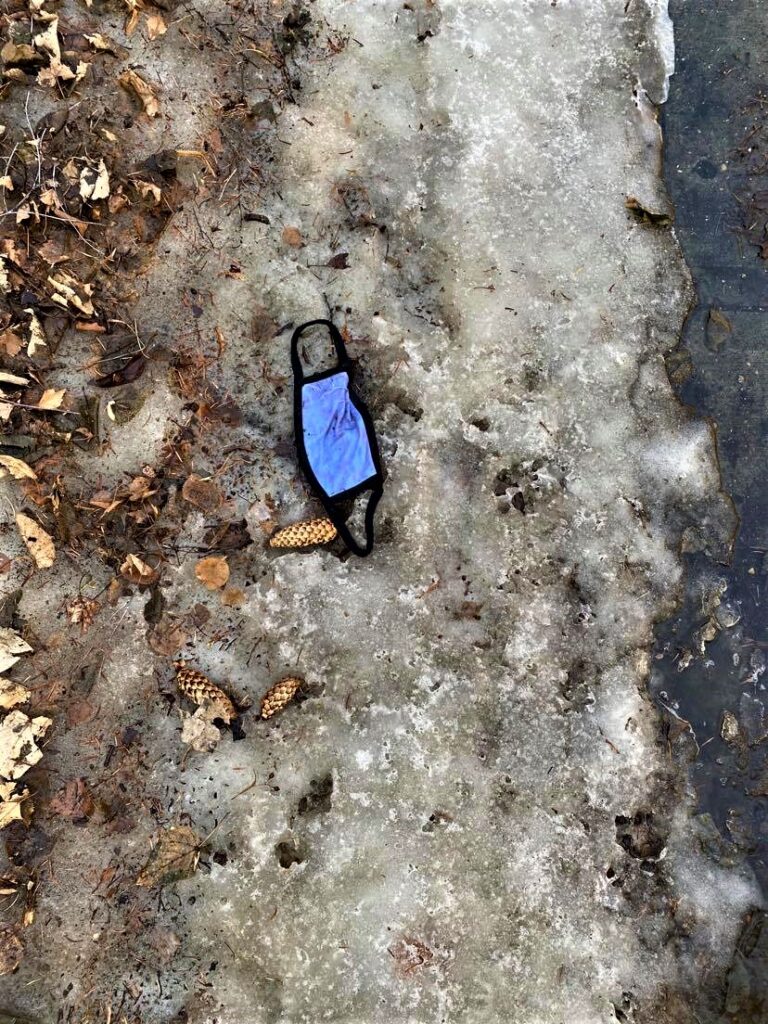
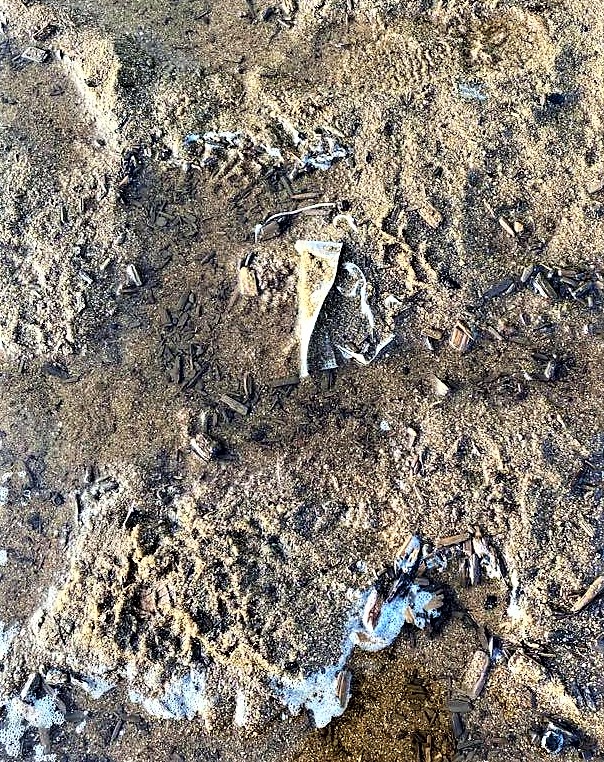
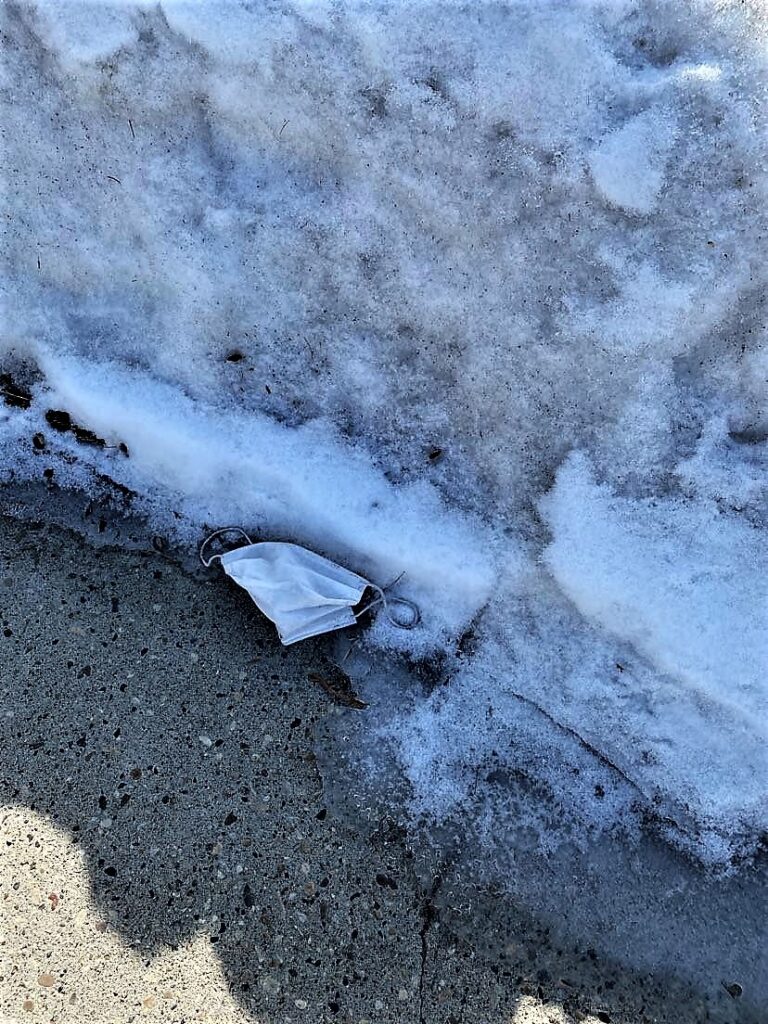
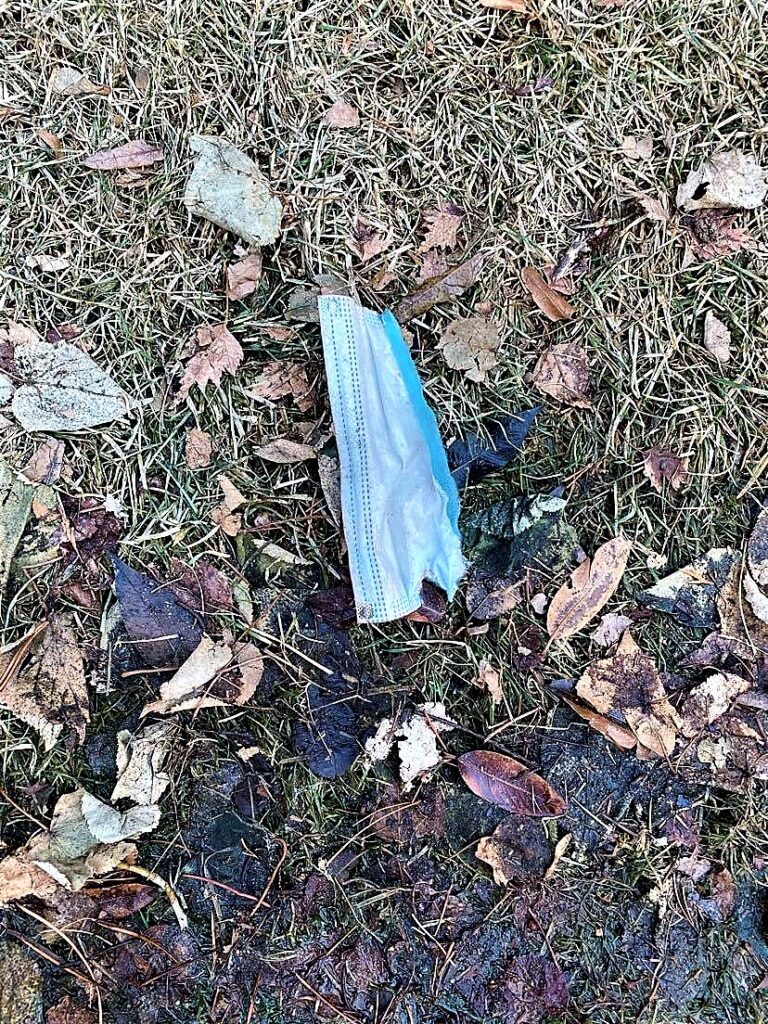
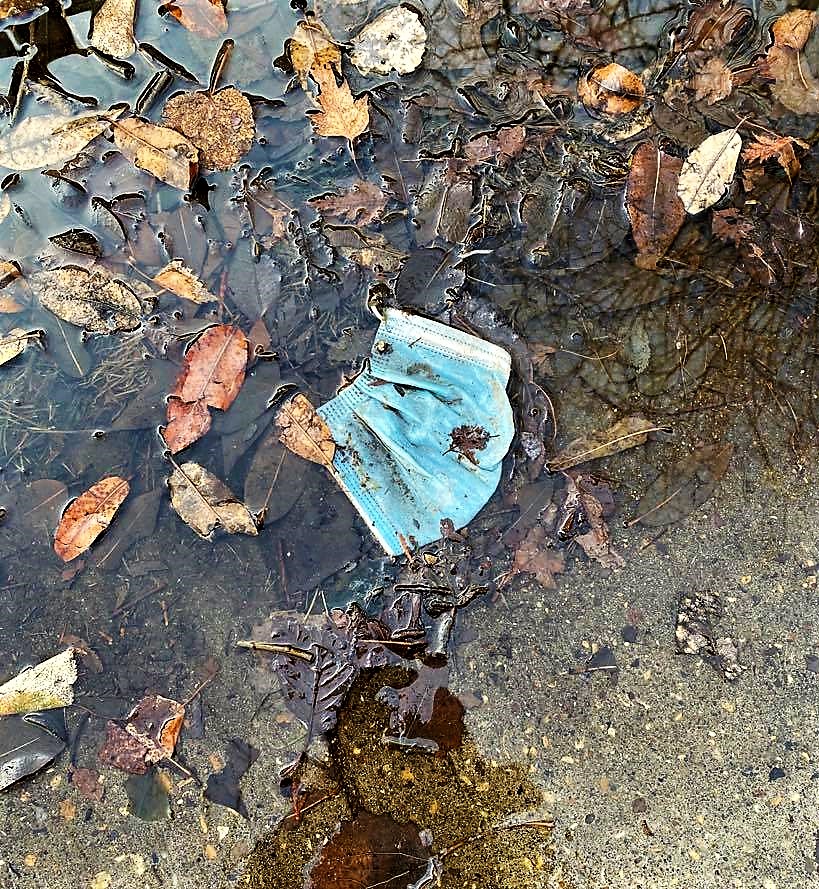
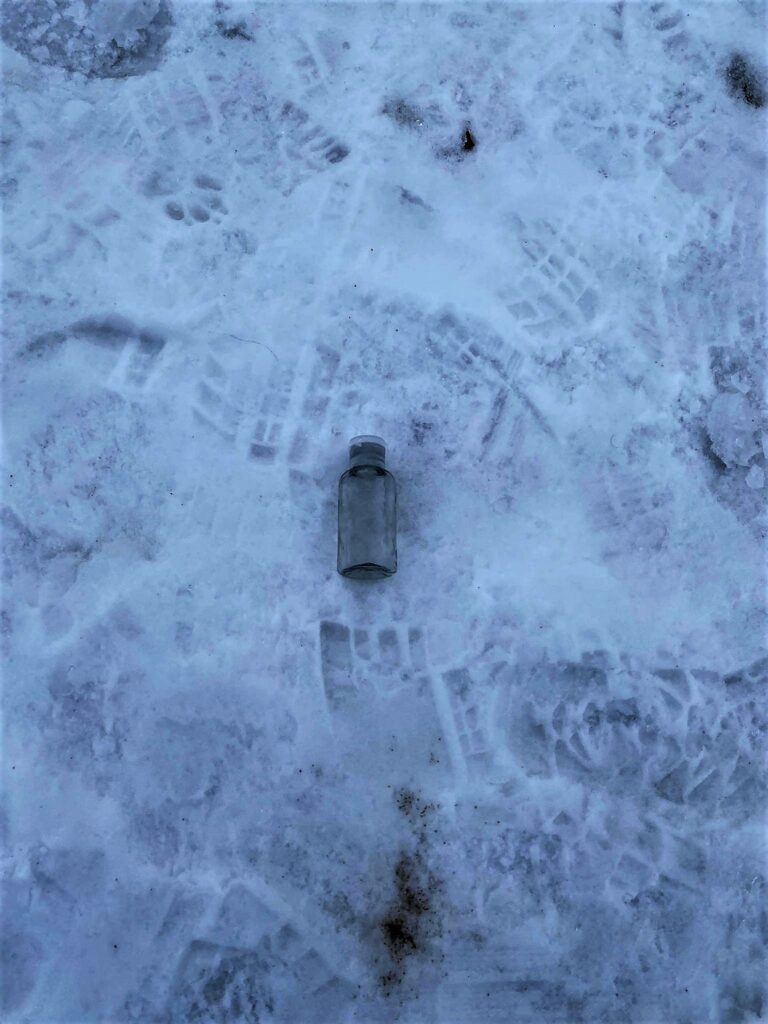
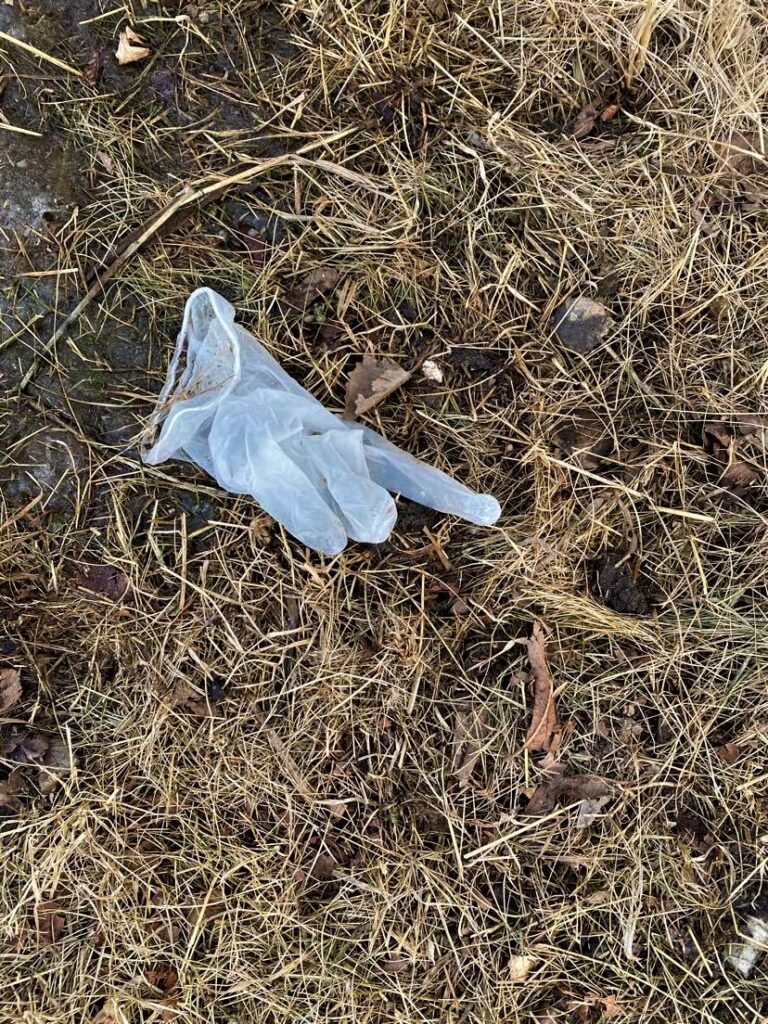
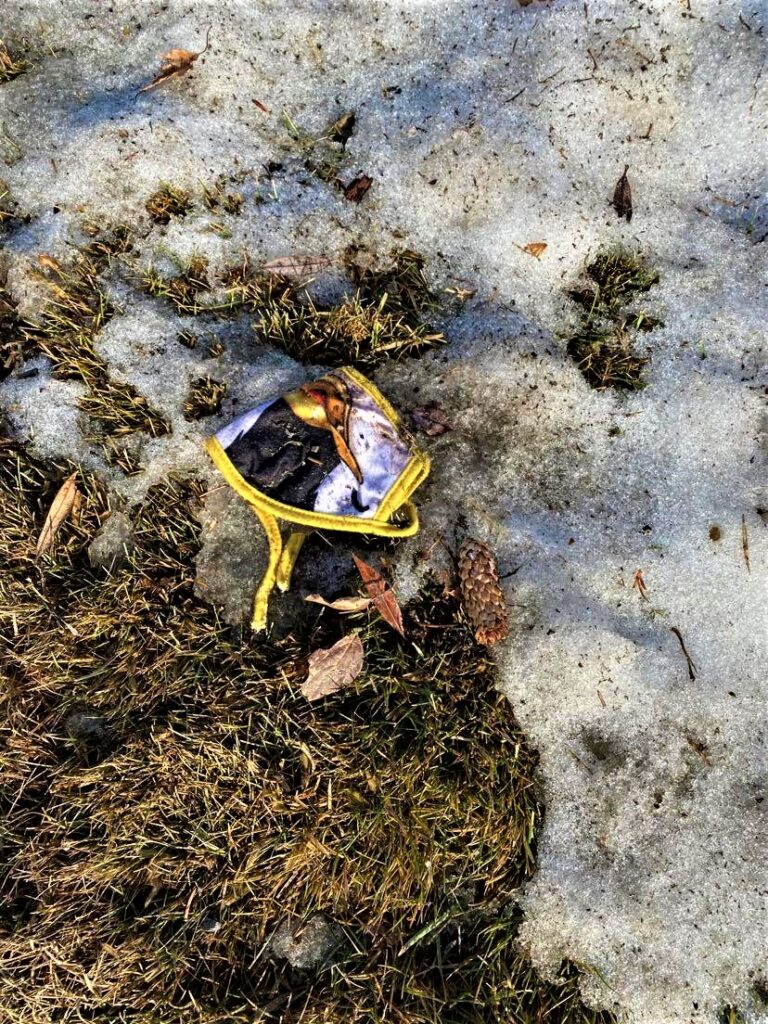
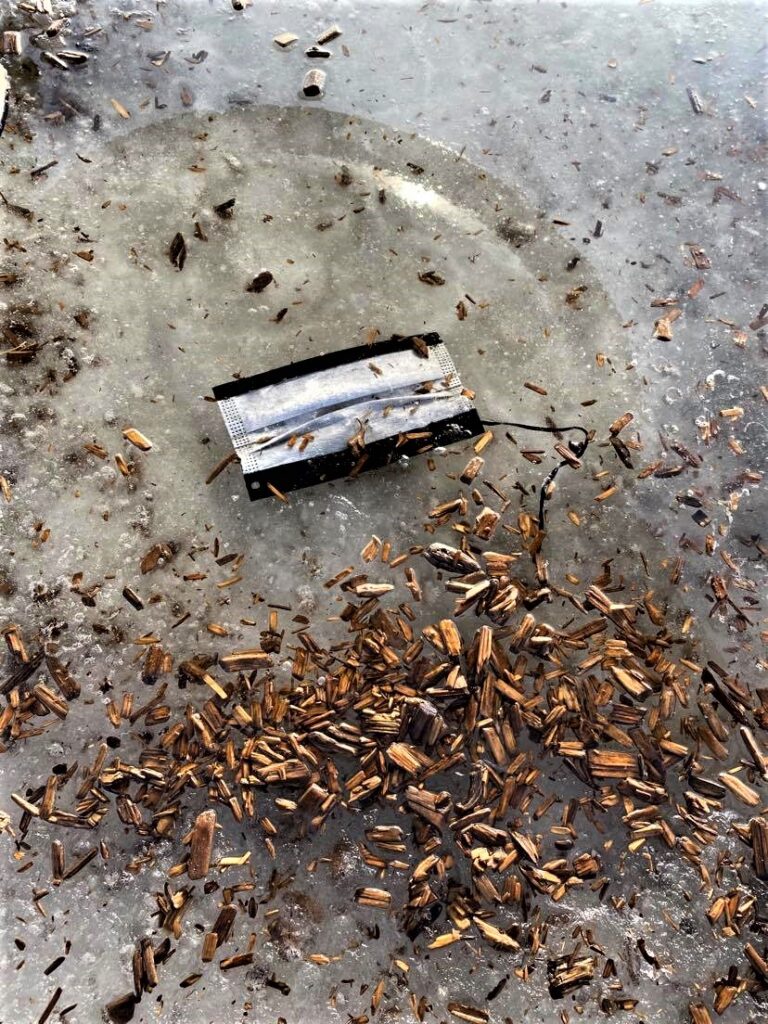
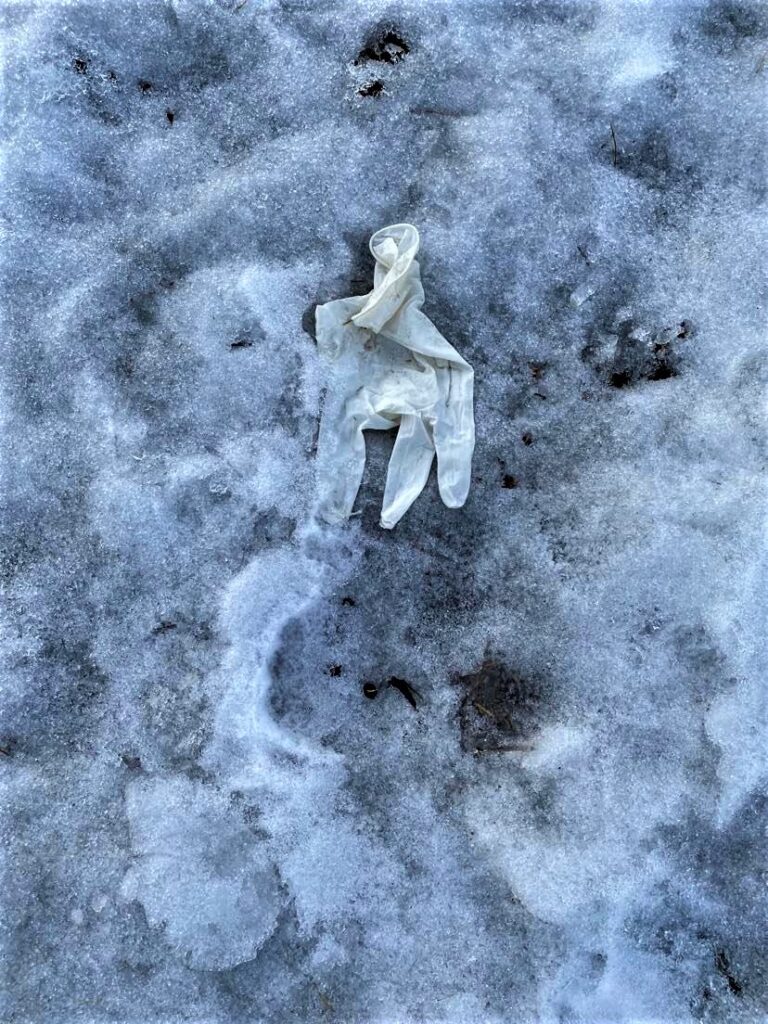
Love this Jolene! I have become disgusted with the massive amounts of (necessary) PPE garbage I see in the hospitals. Then again, with the litter in parking lots. It’s a constant battle, and no easy solution. I also took some pictures… have a picture of the playground by our house with “yellow tape” around all the equipment (last April)
It’s really worrisome! I can only imagine the detritus around the hospital. These photos are all from just around my neighbourhood, found while walking around. One day I took 14 photos. So sad.